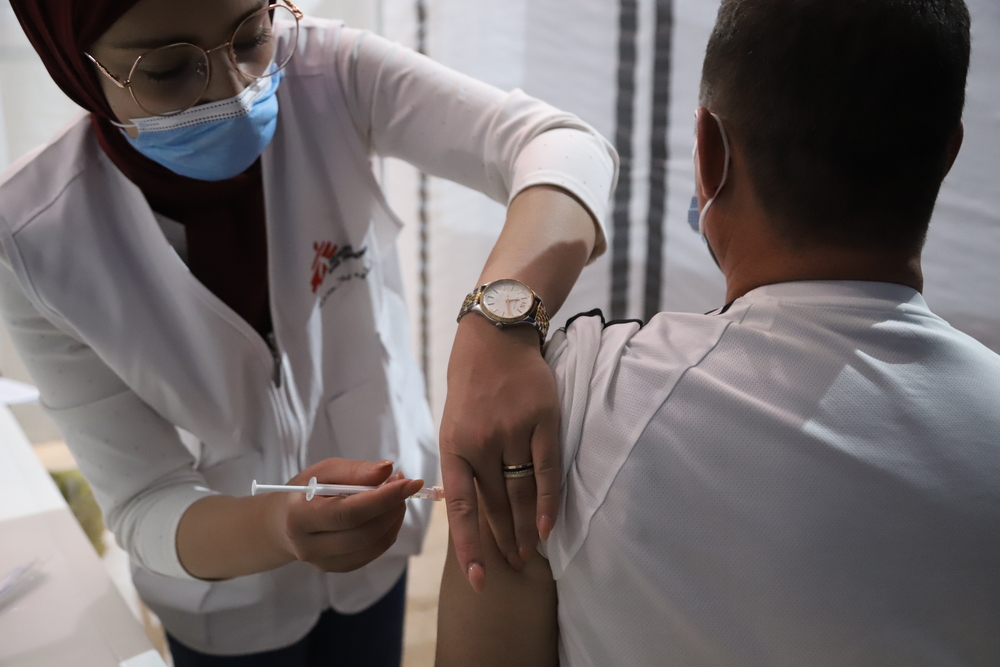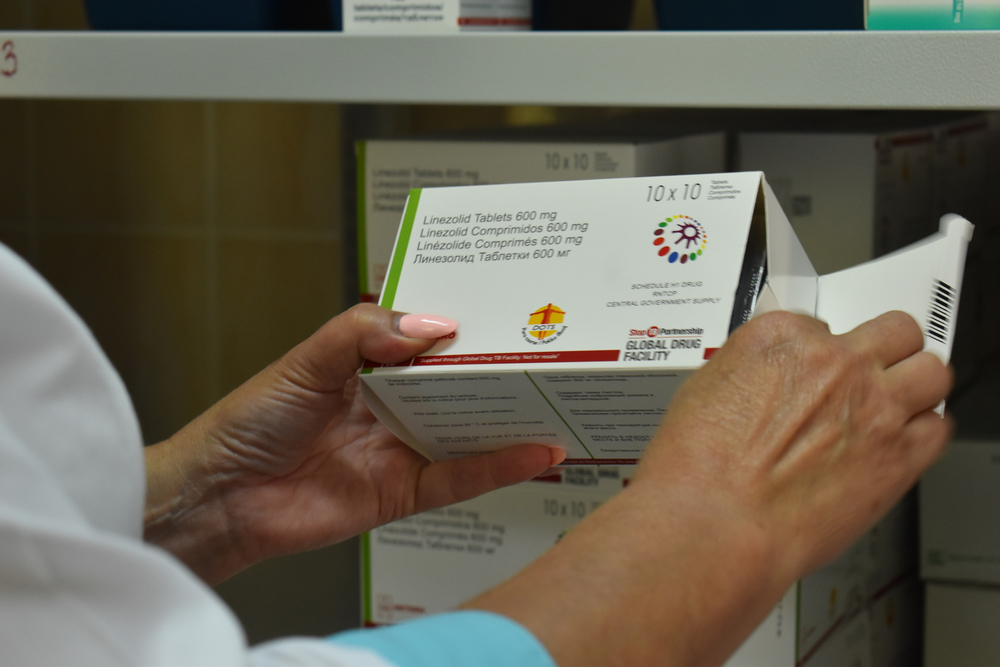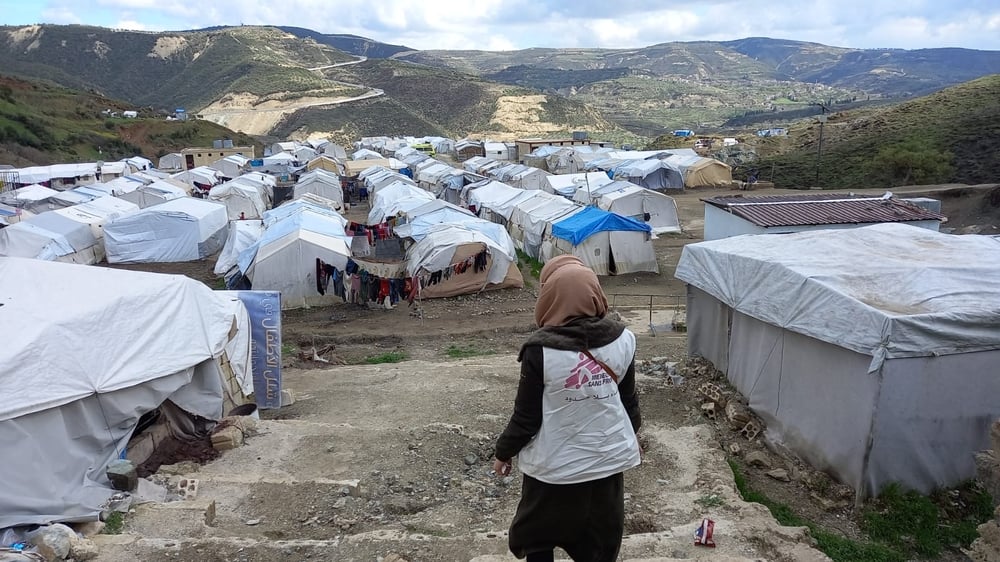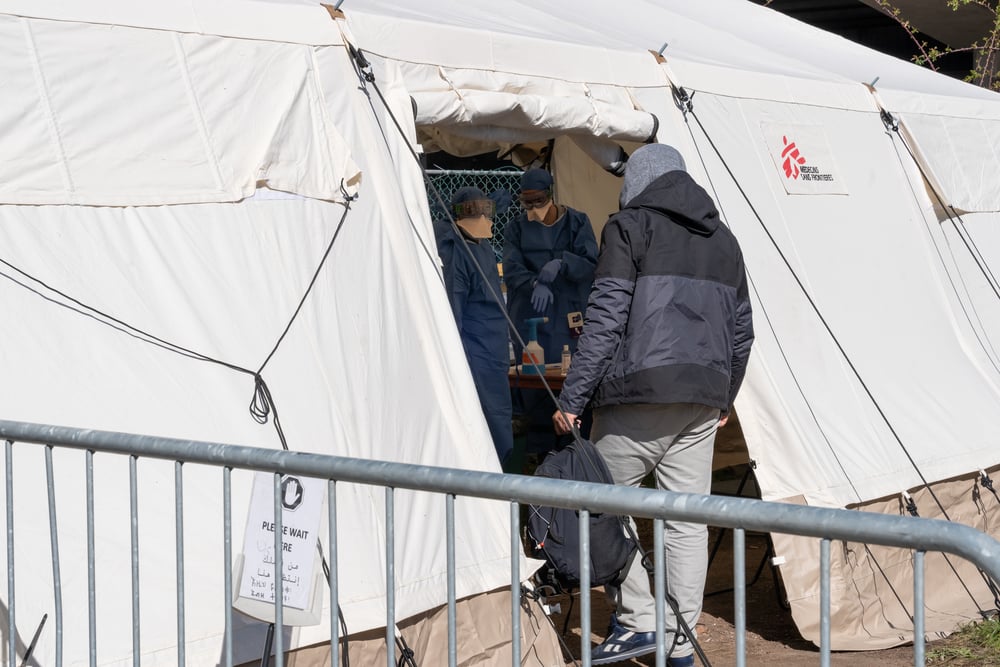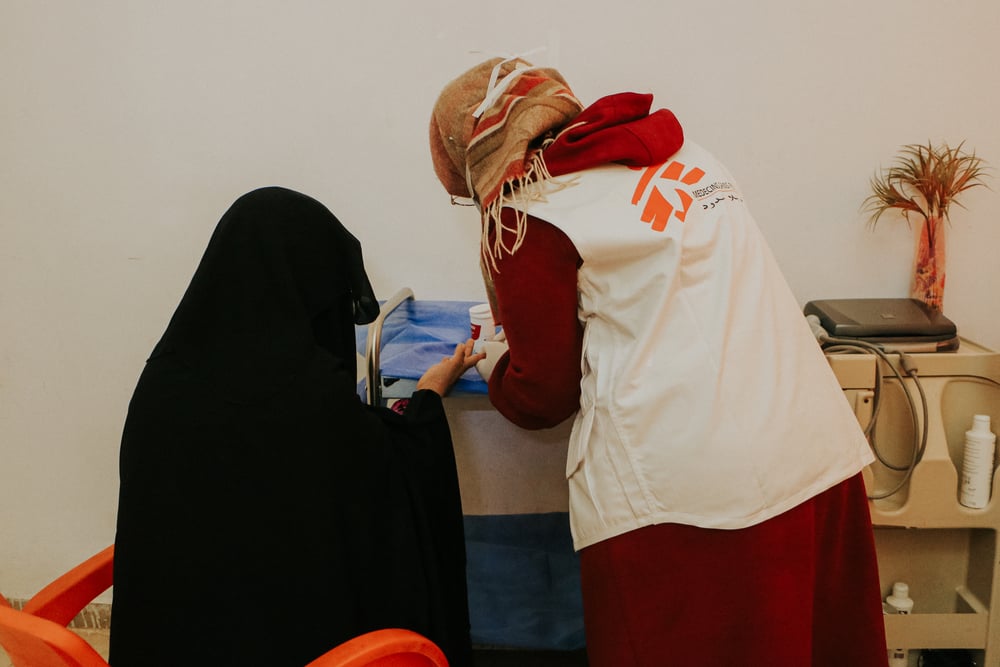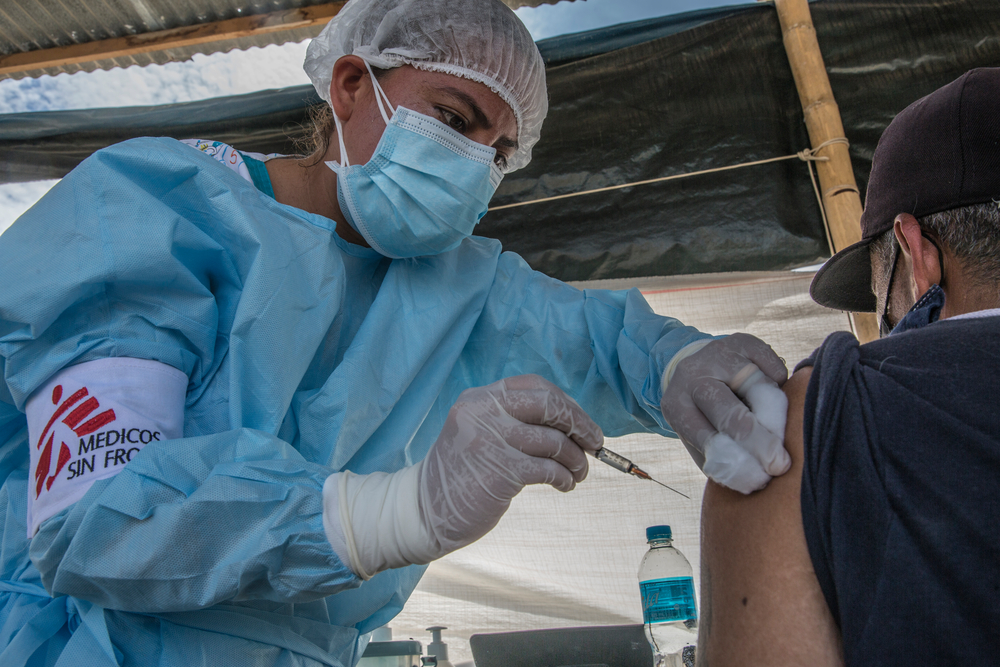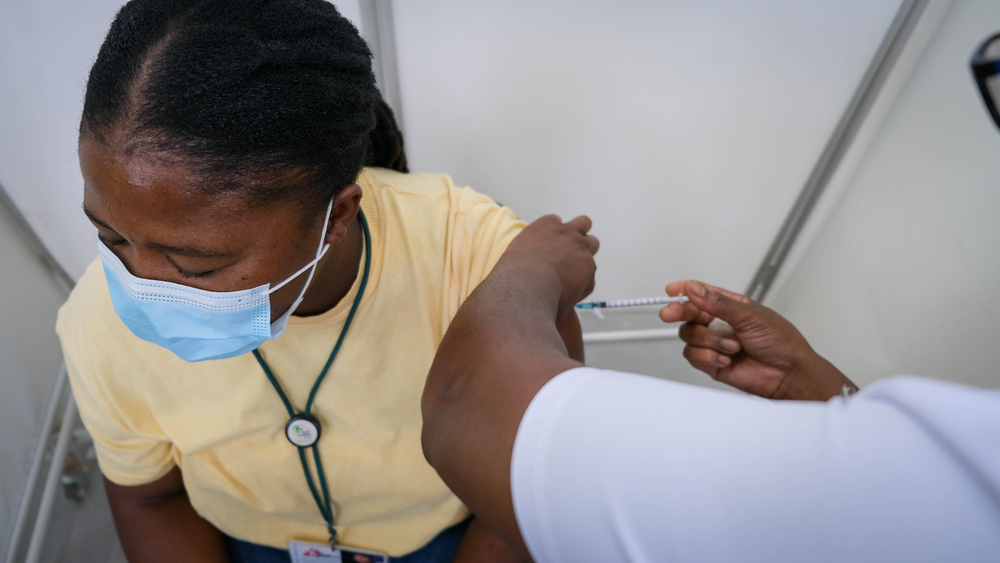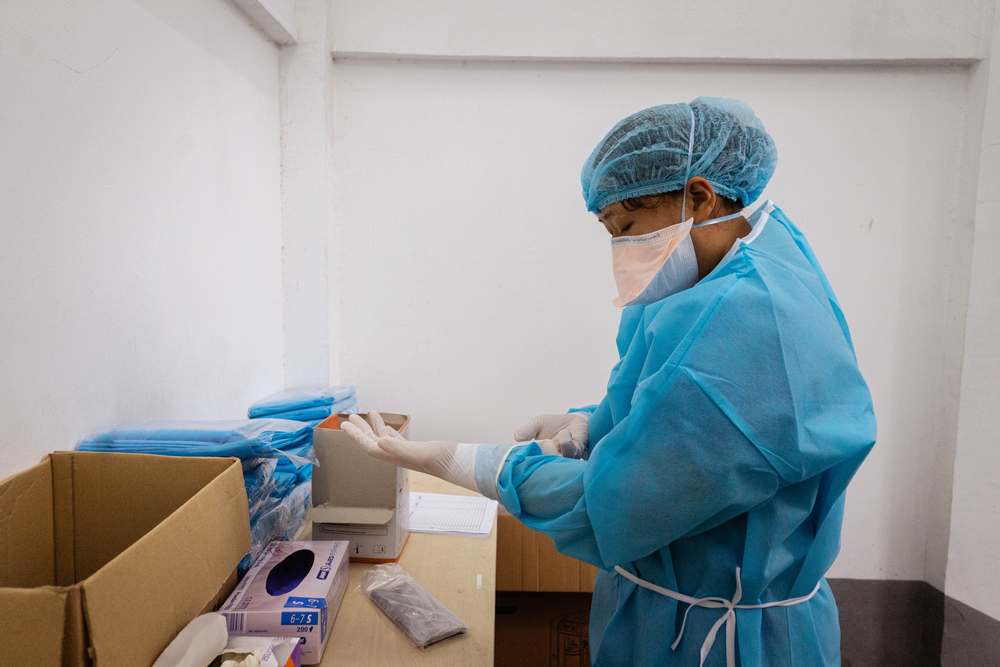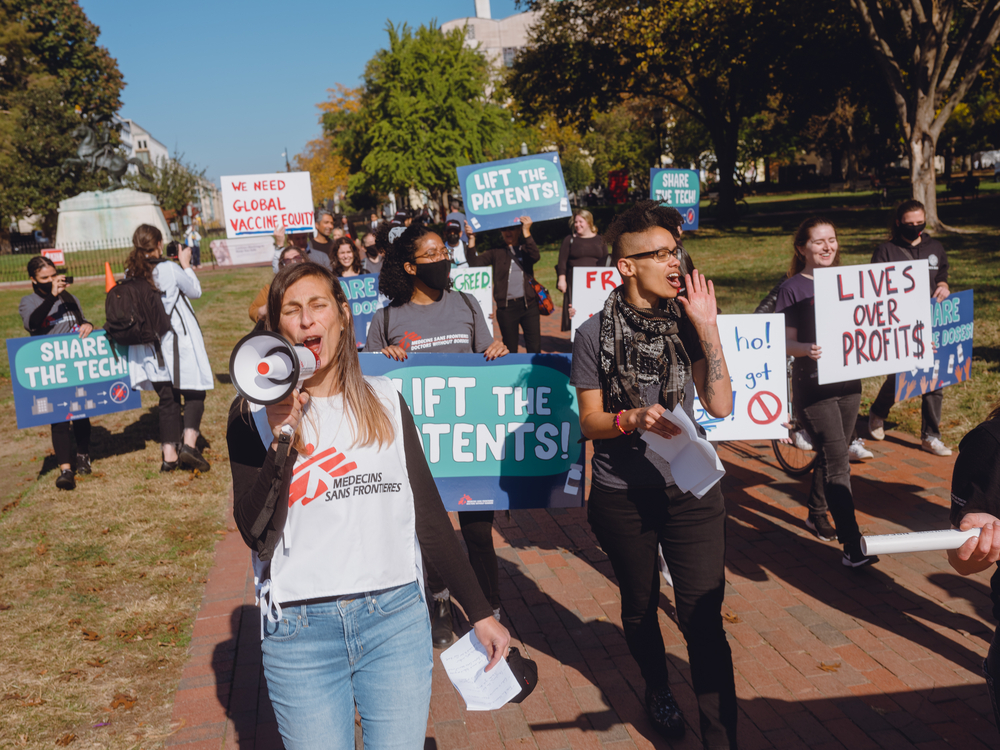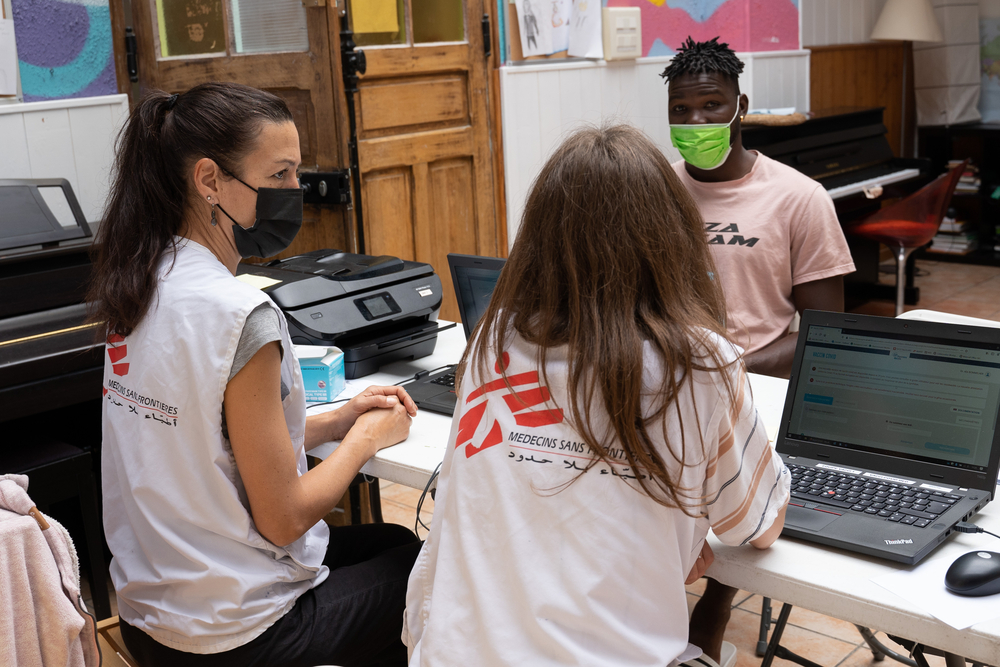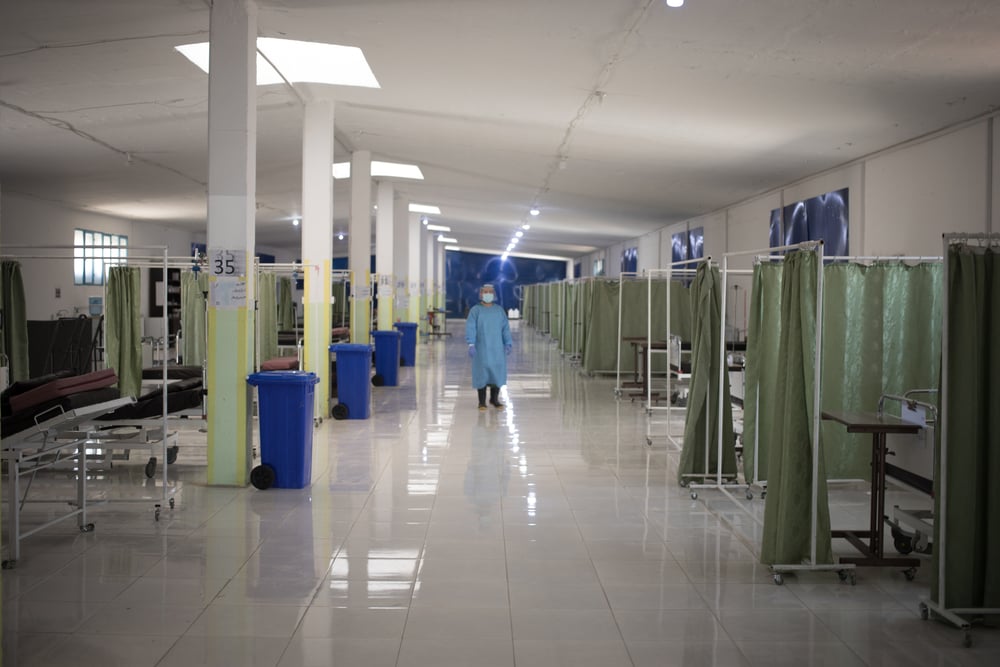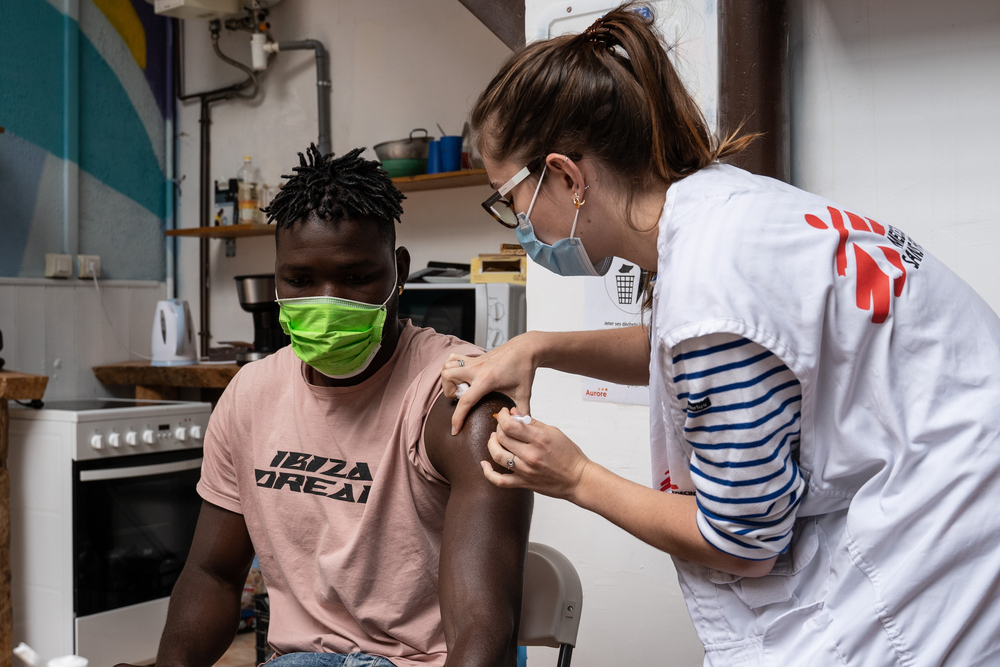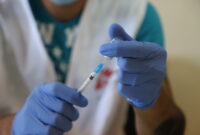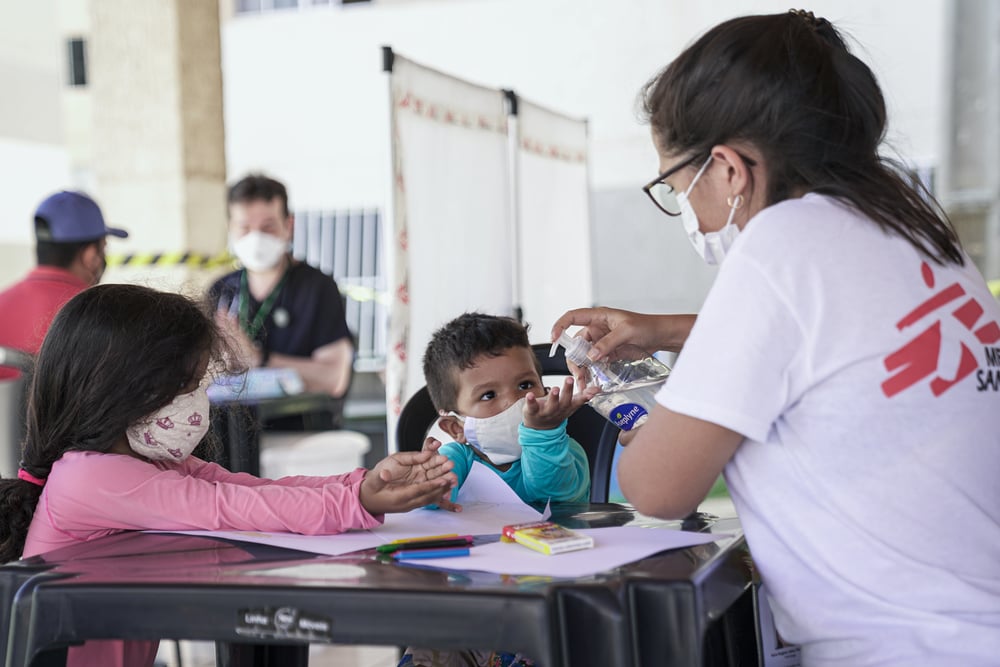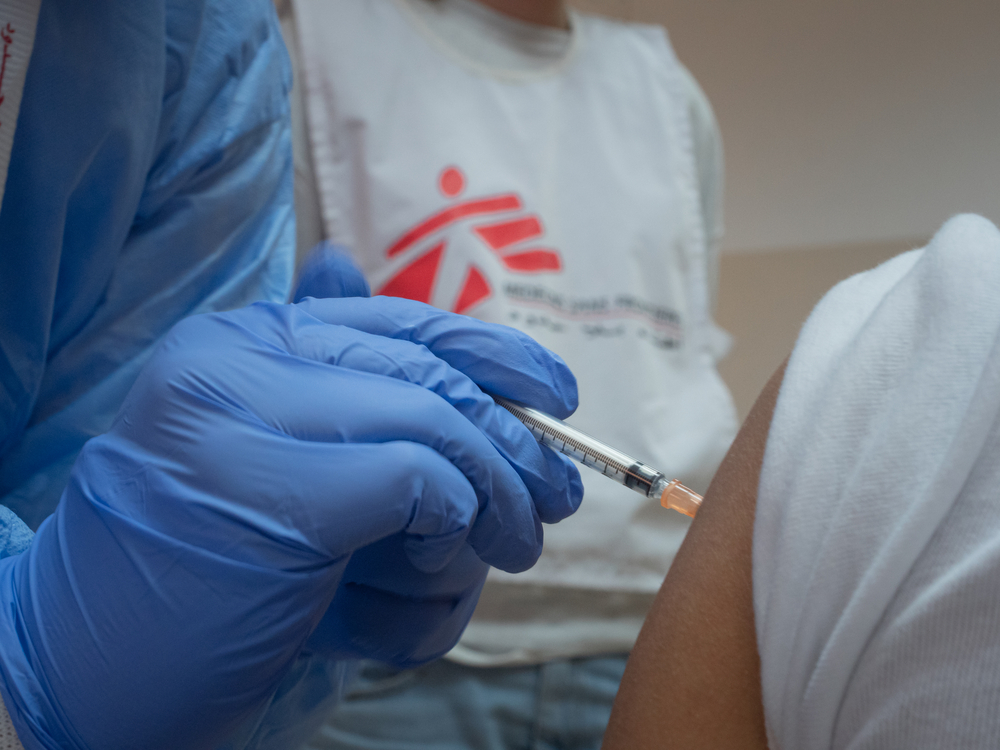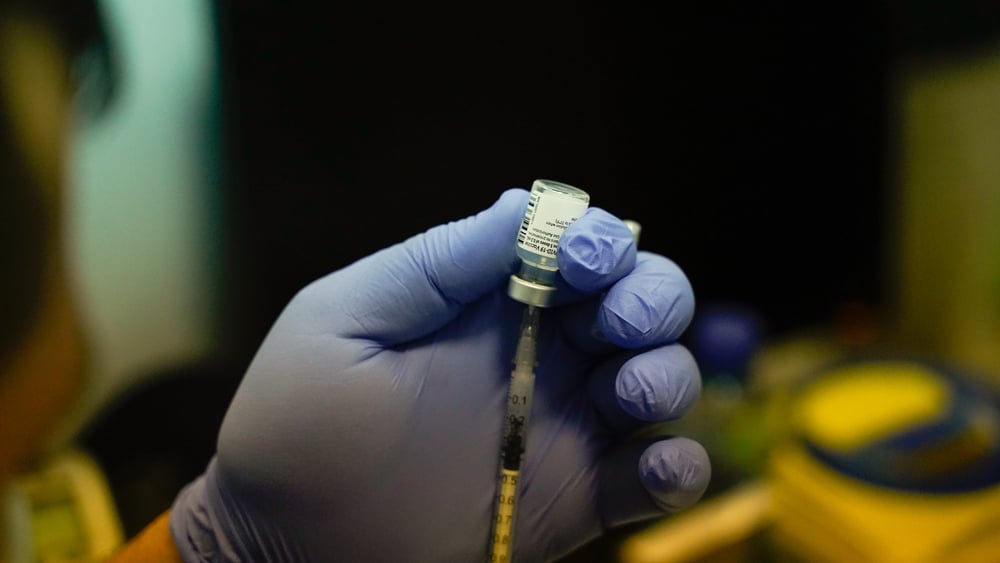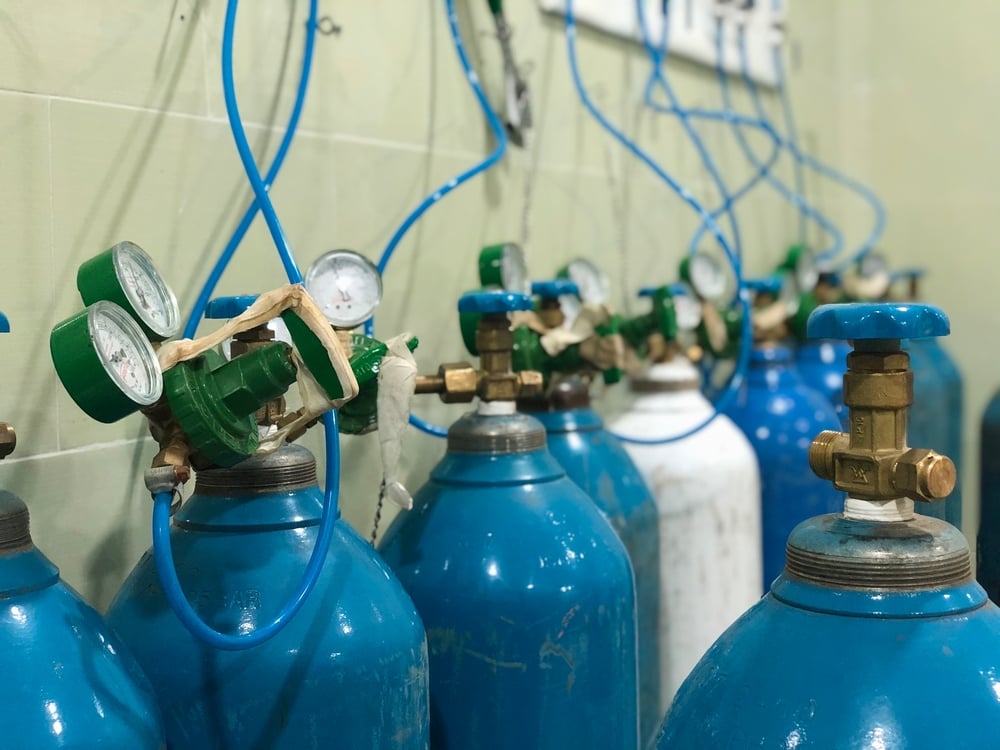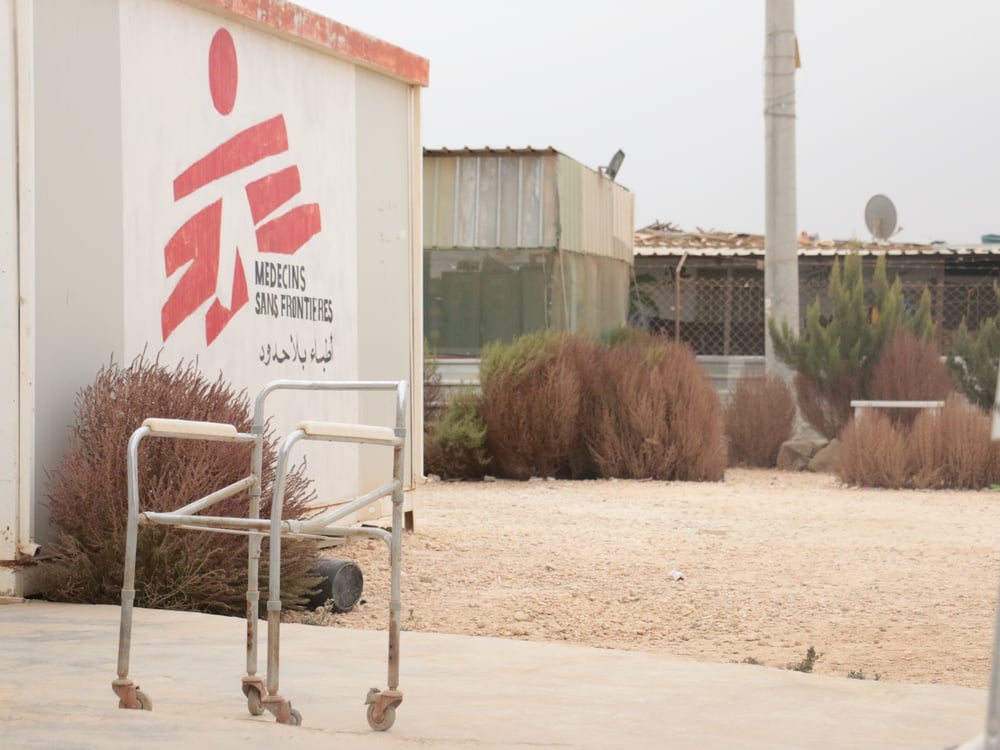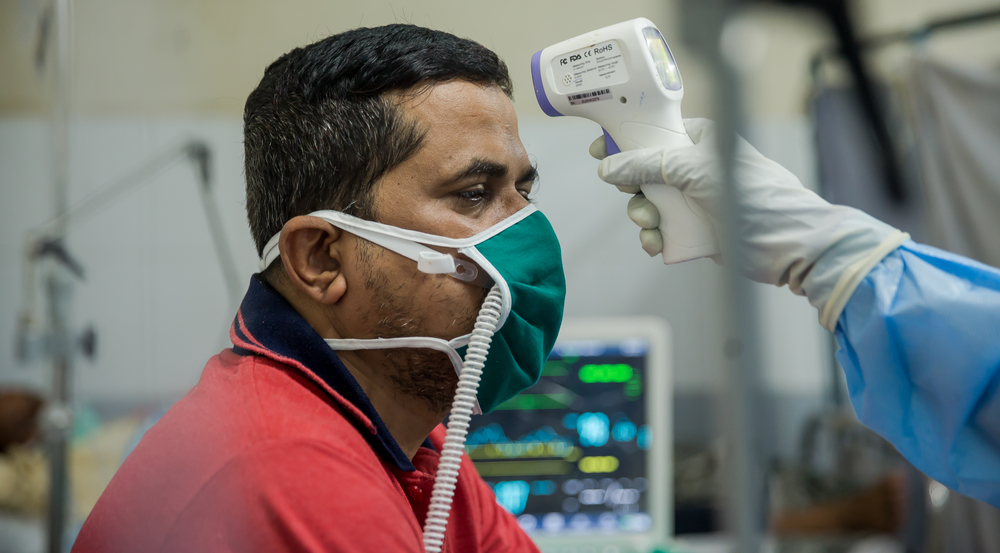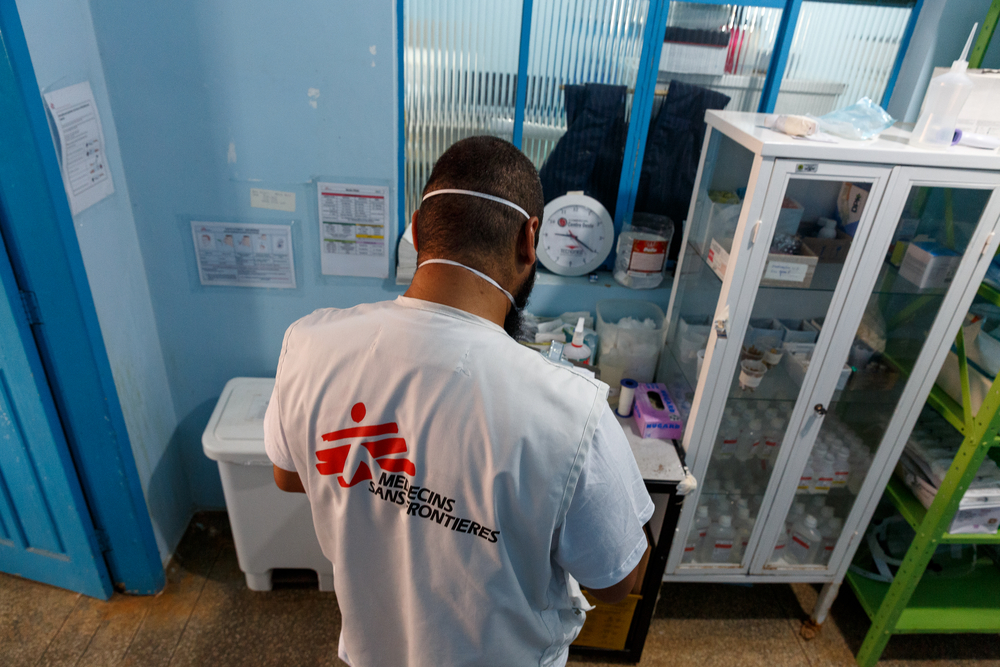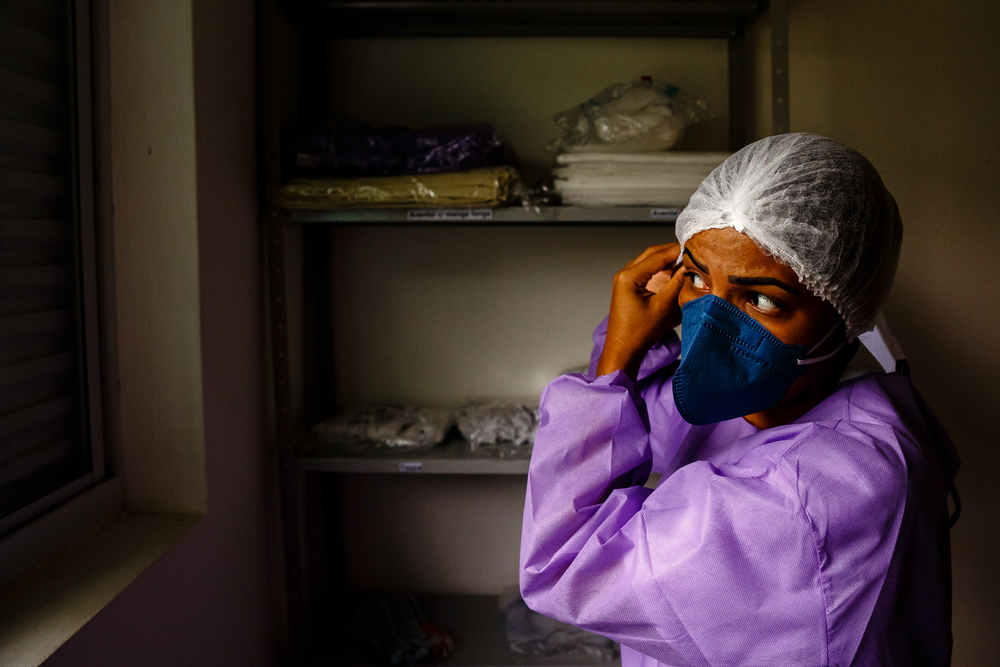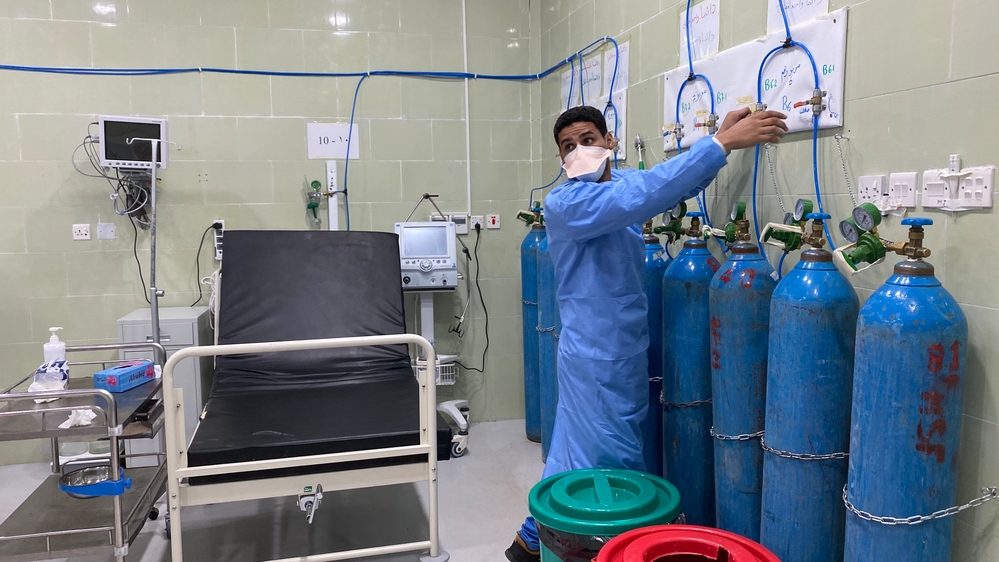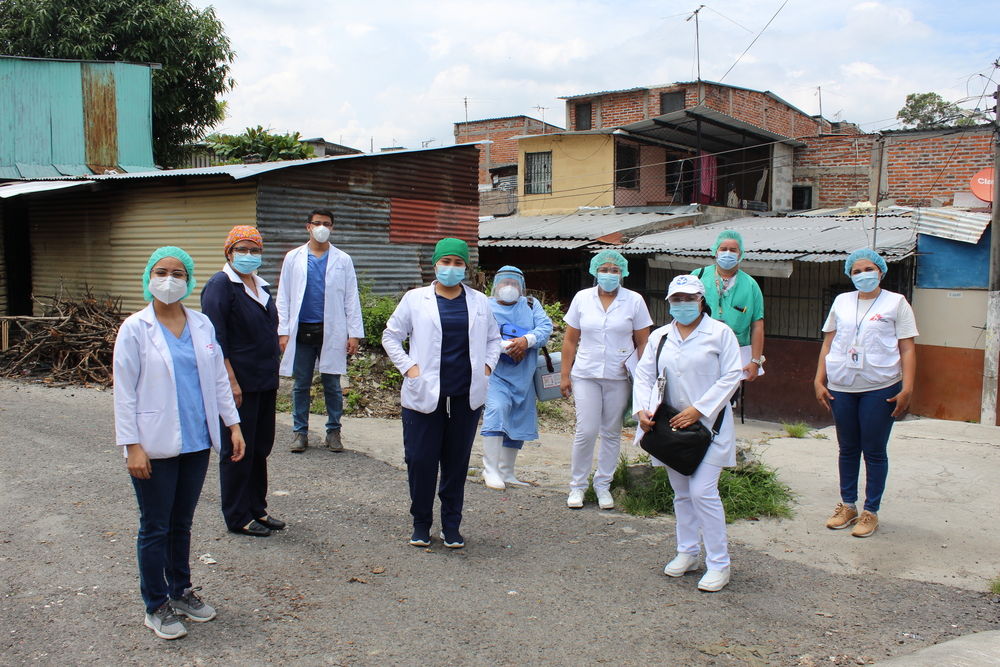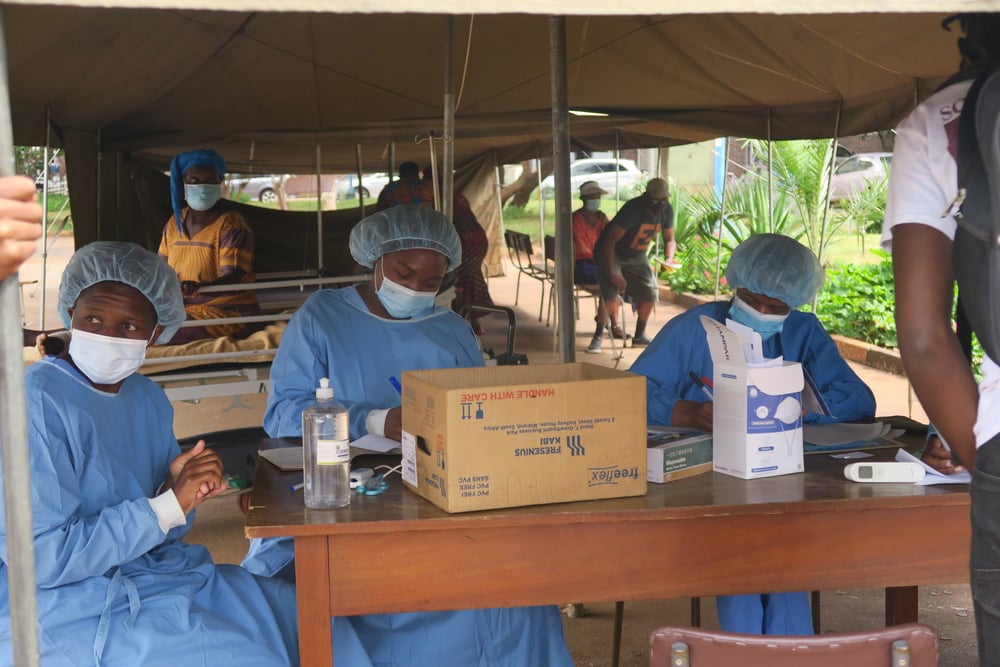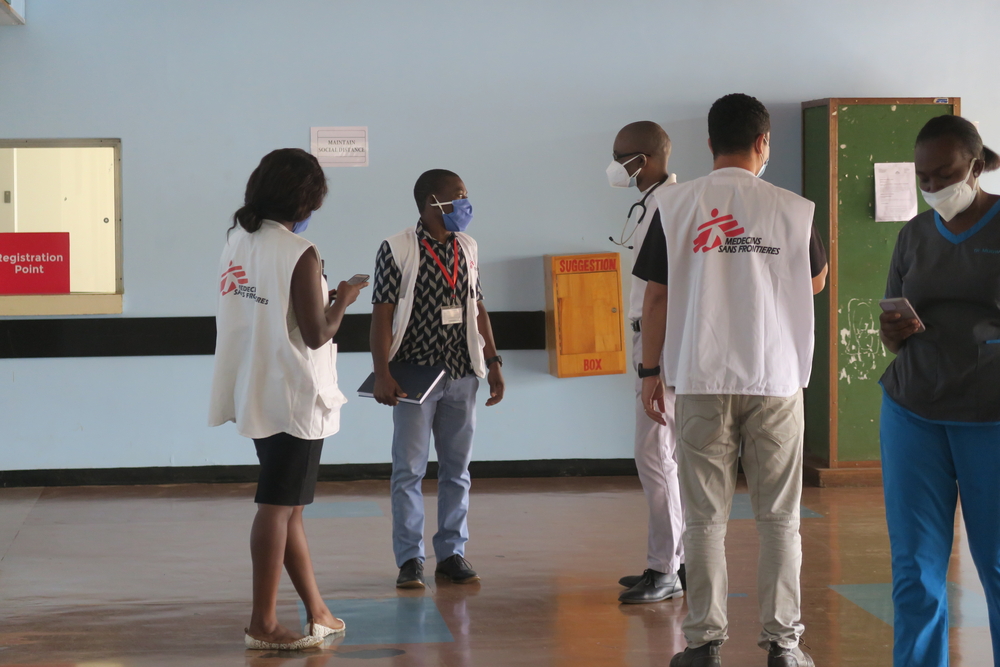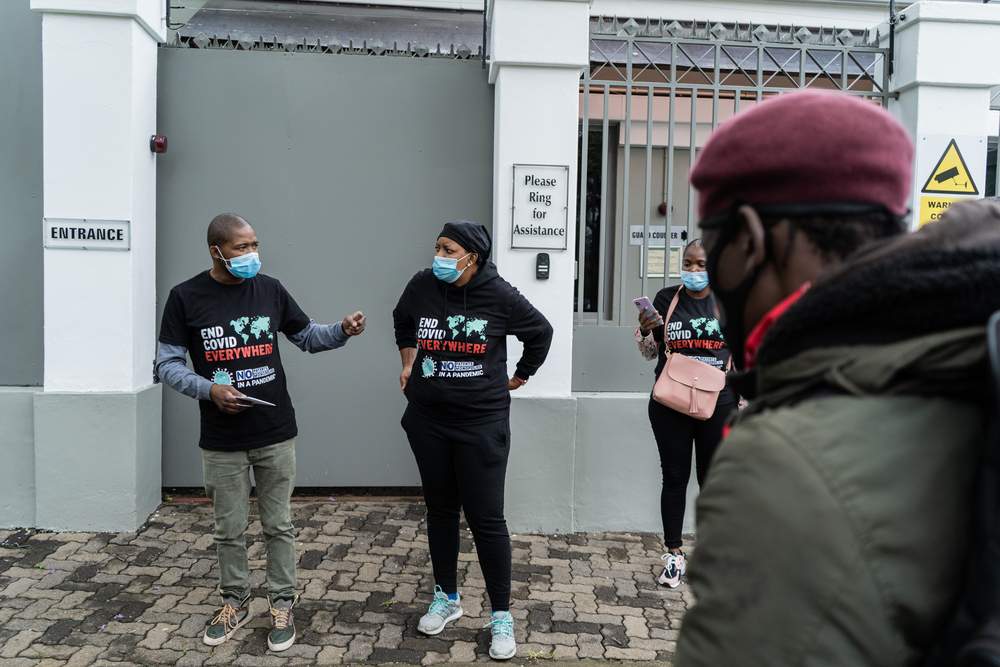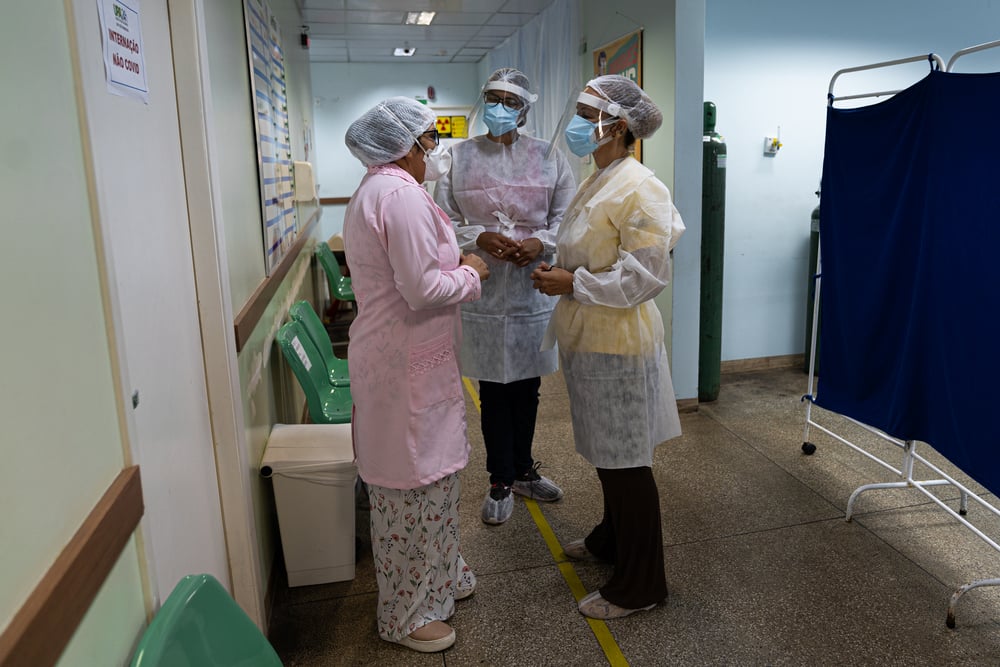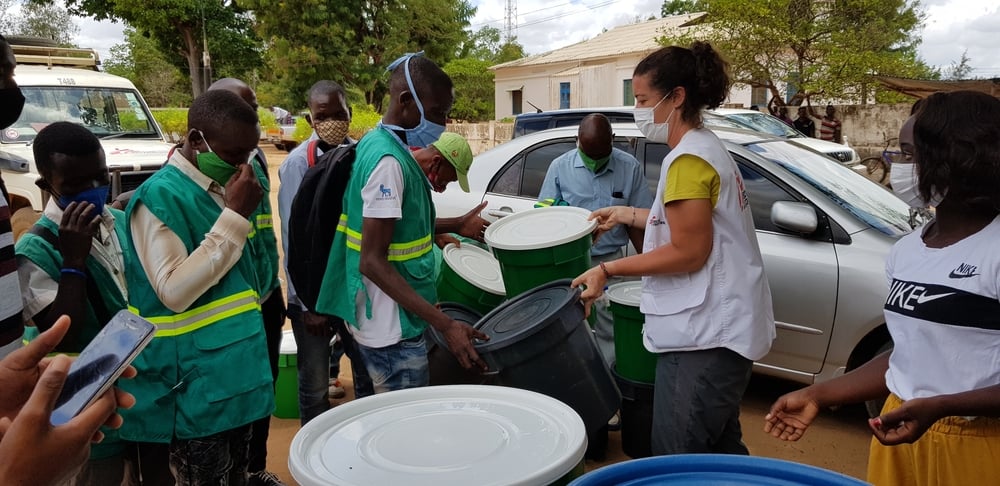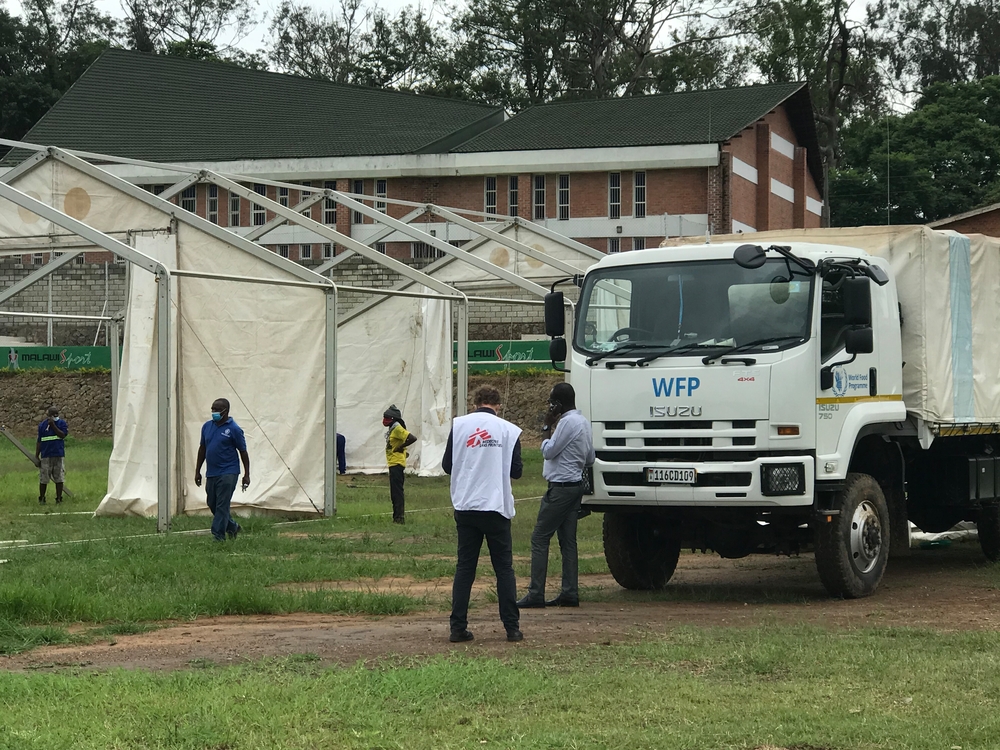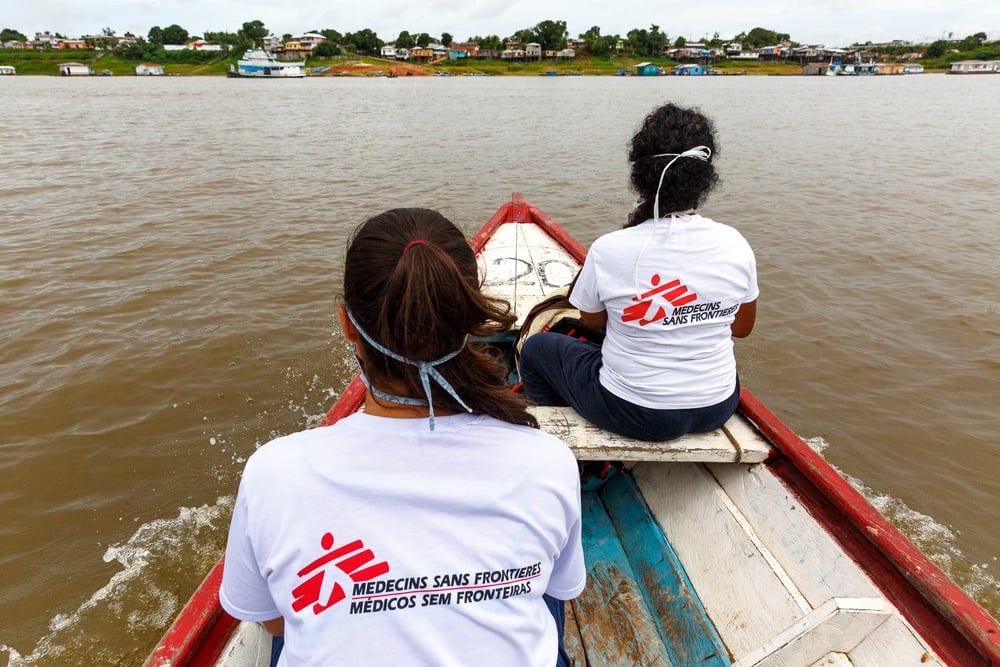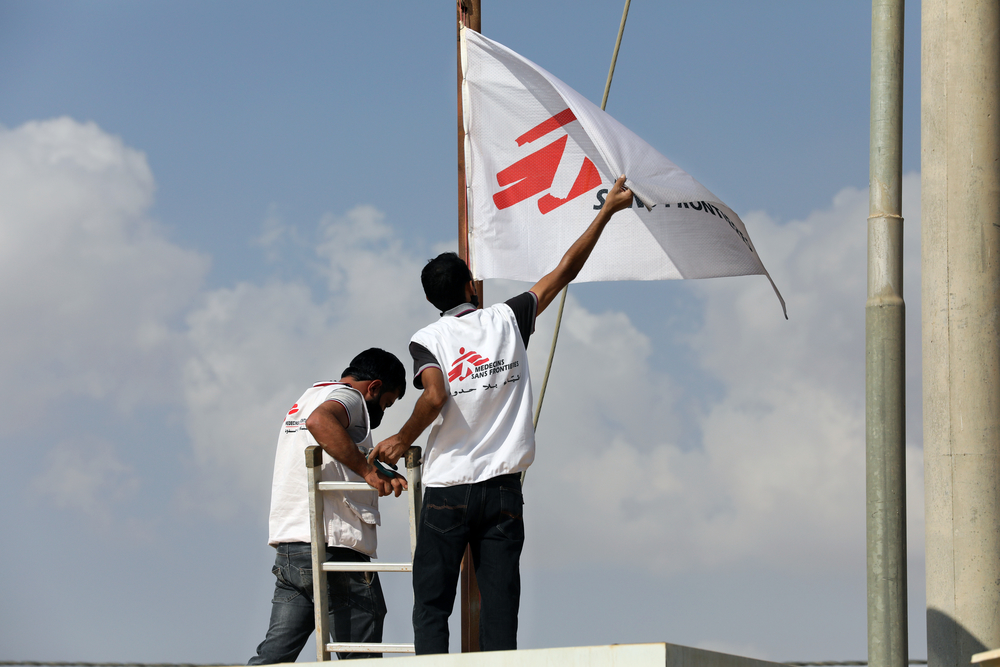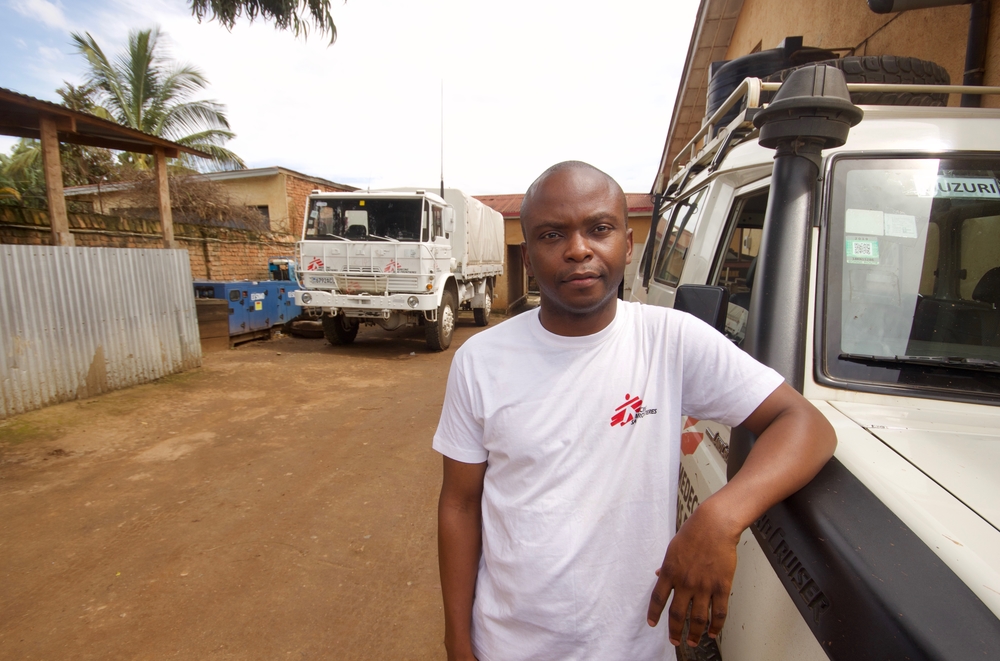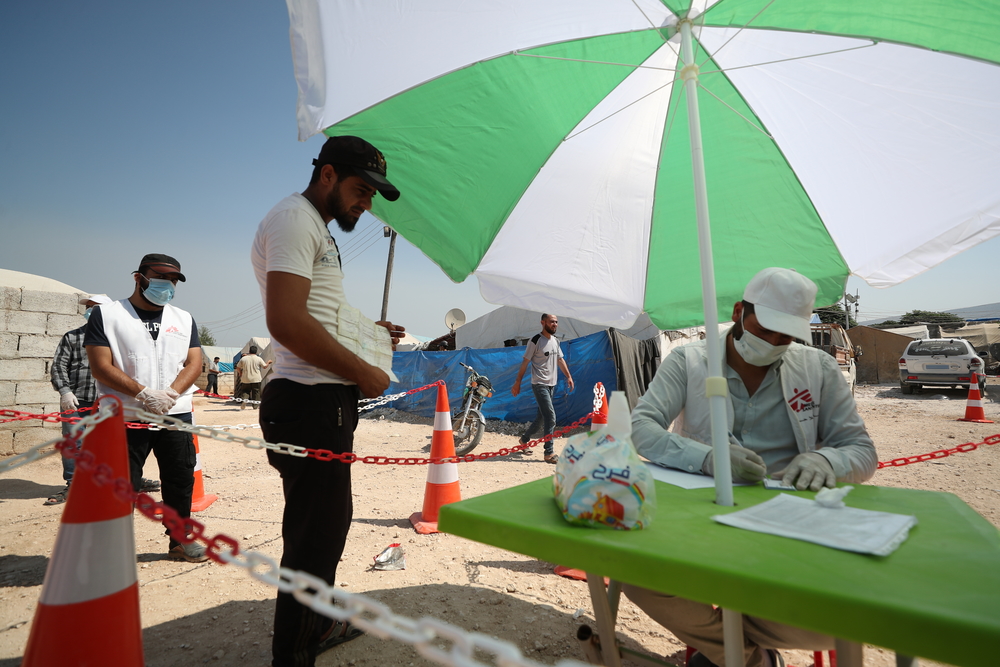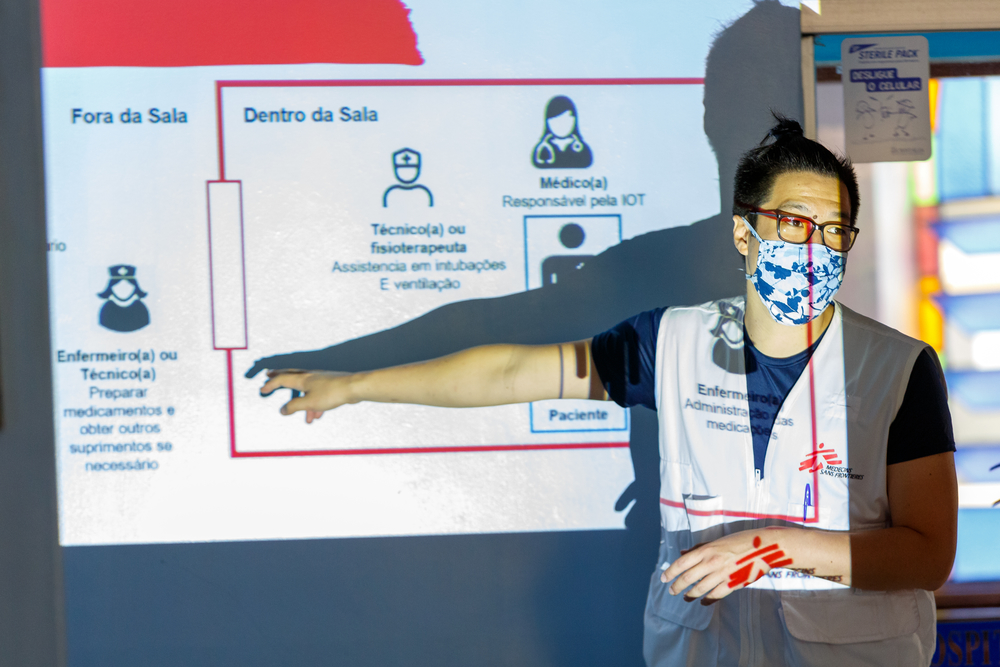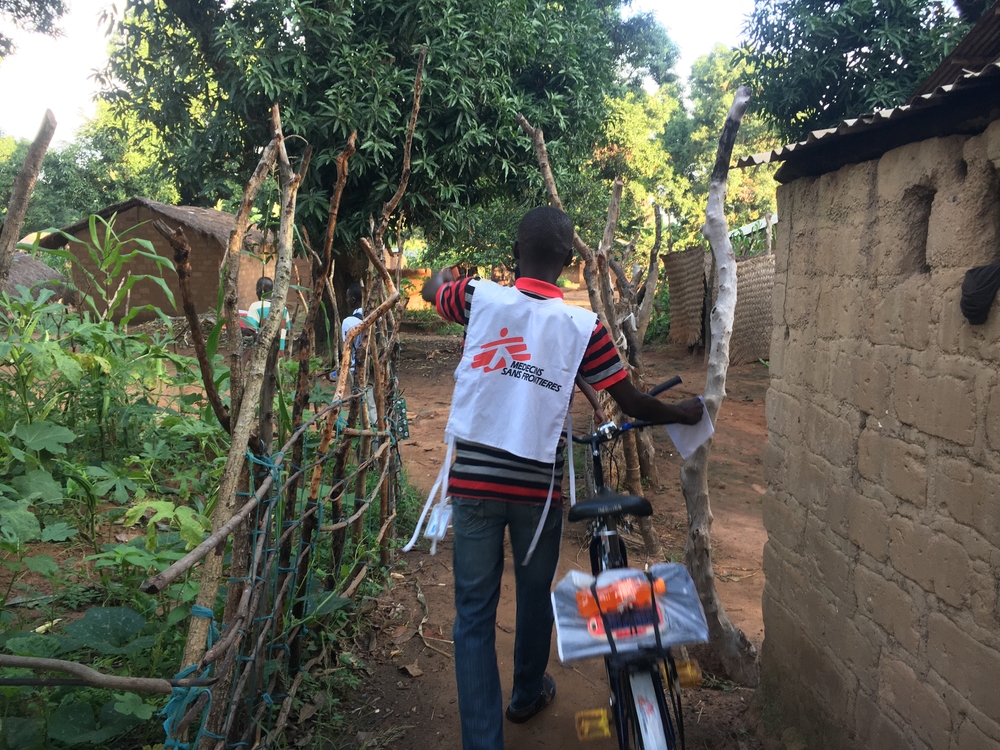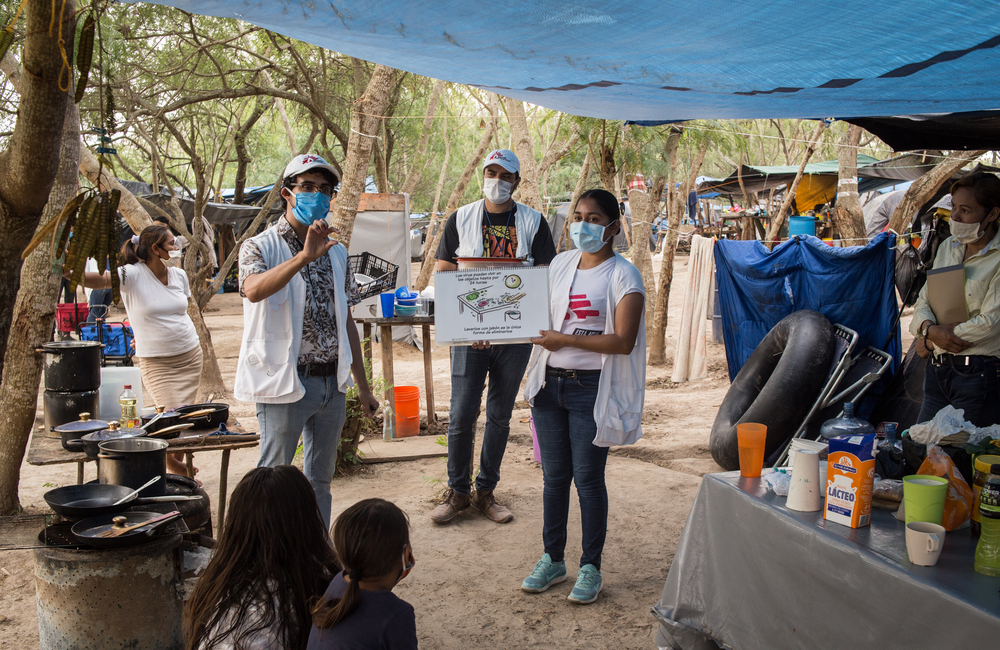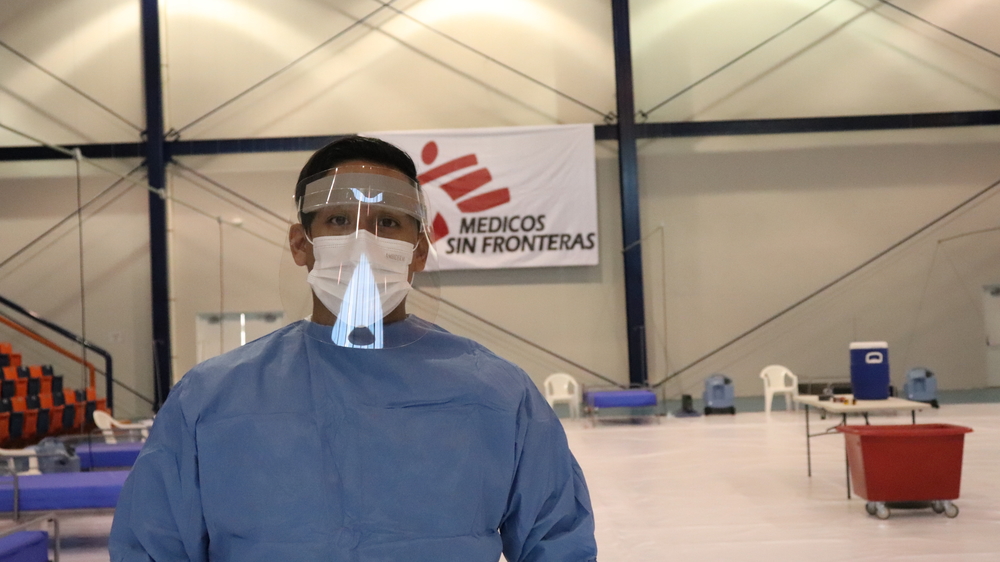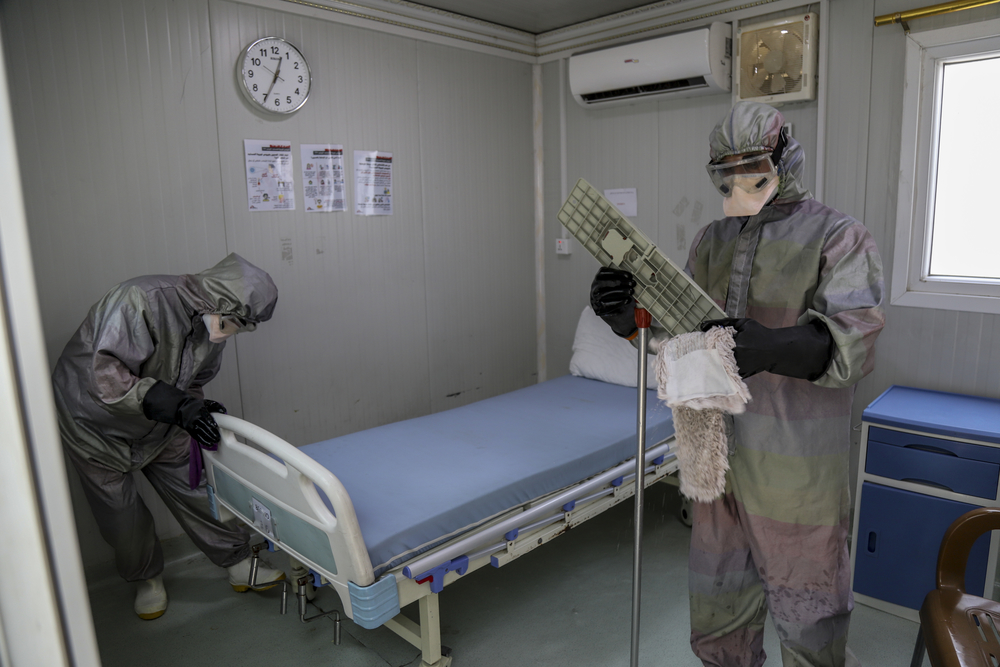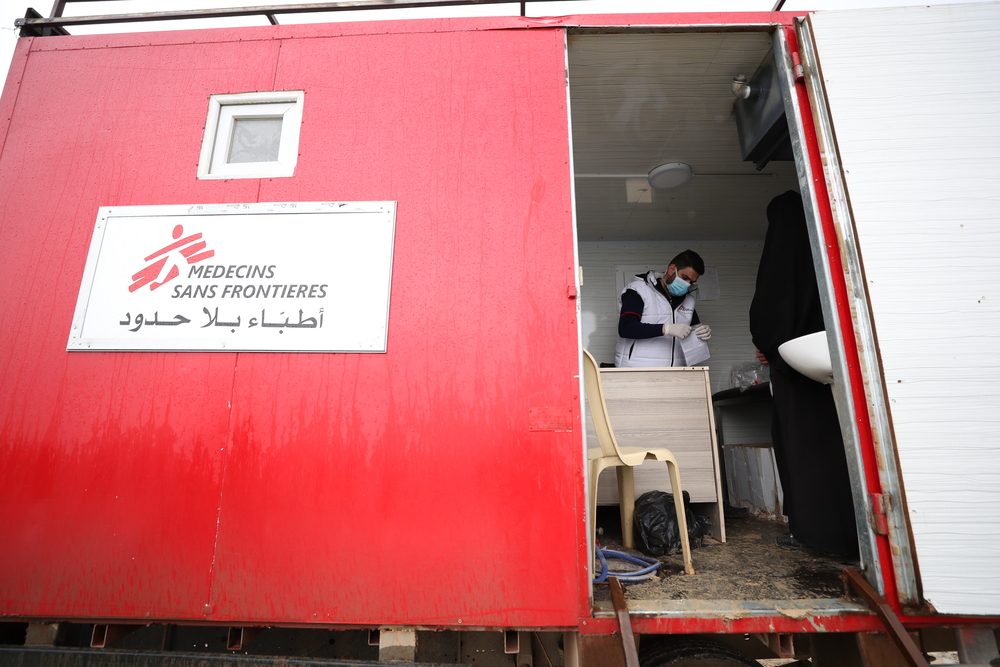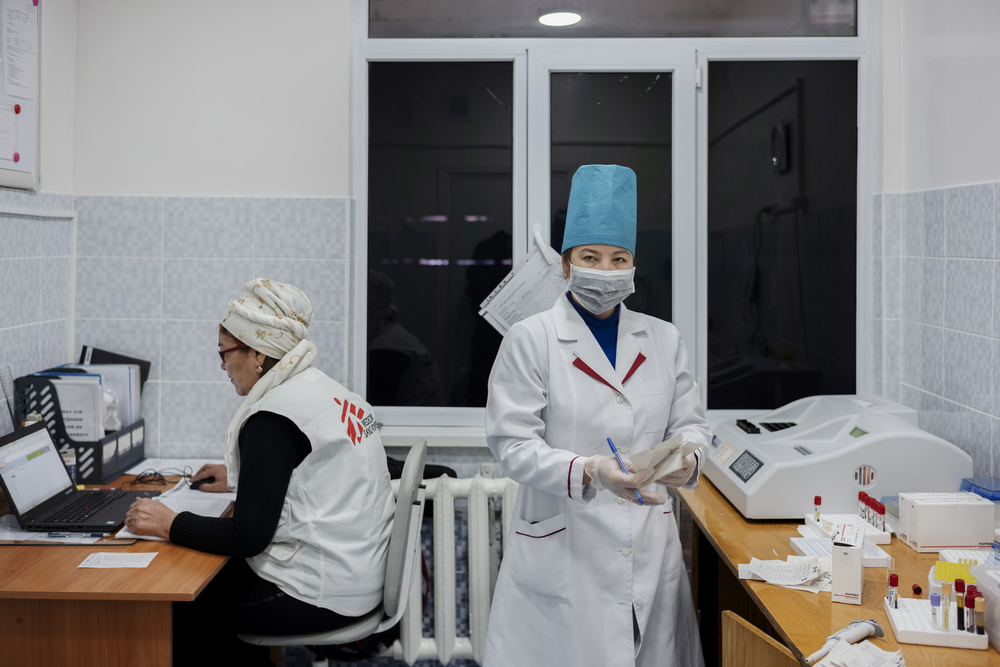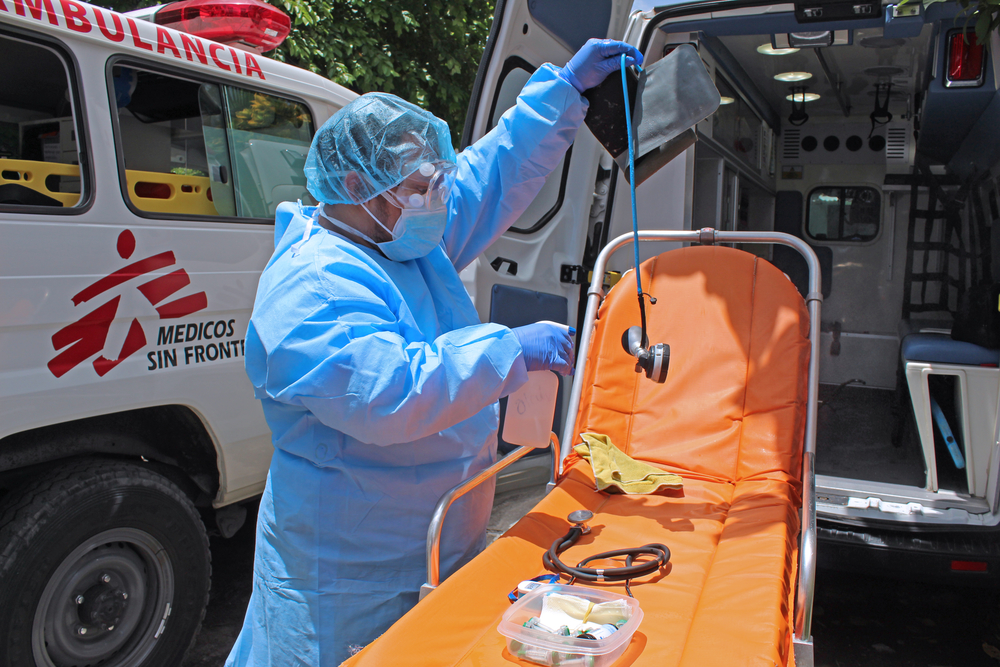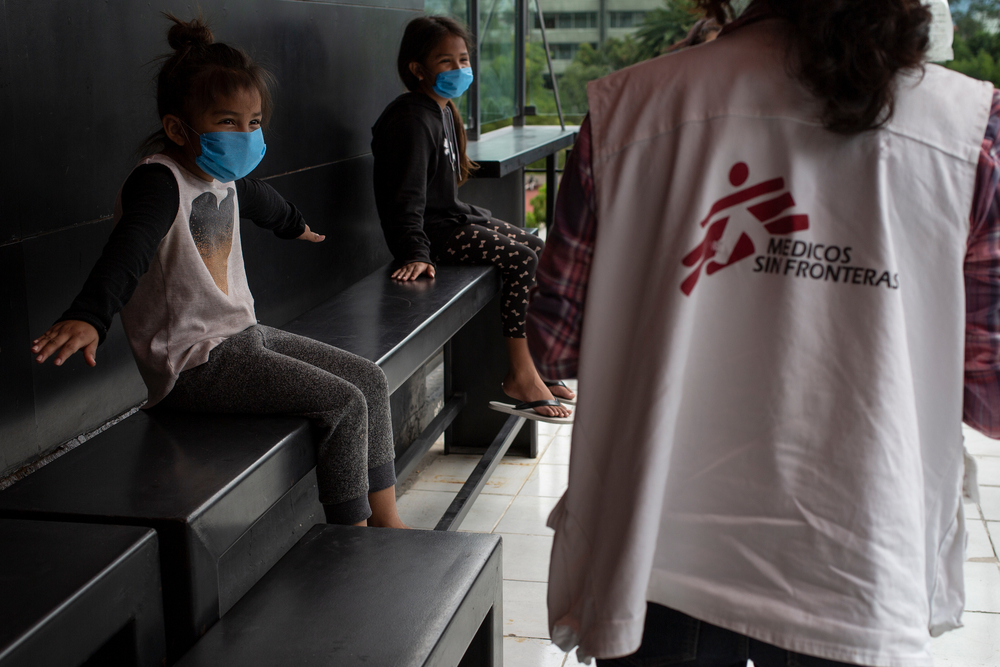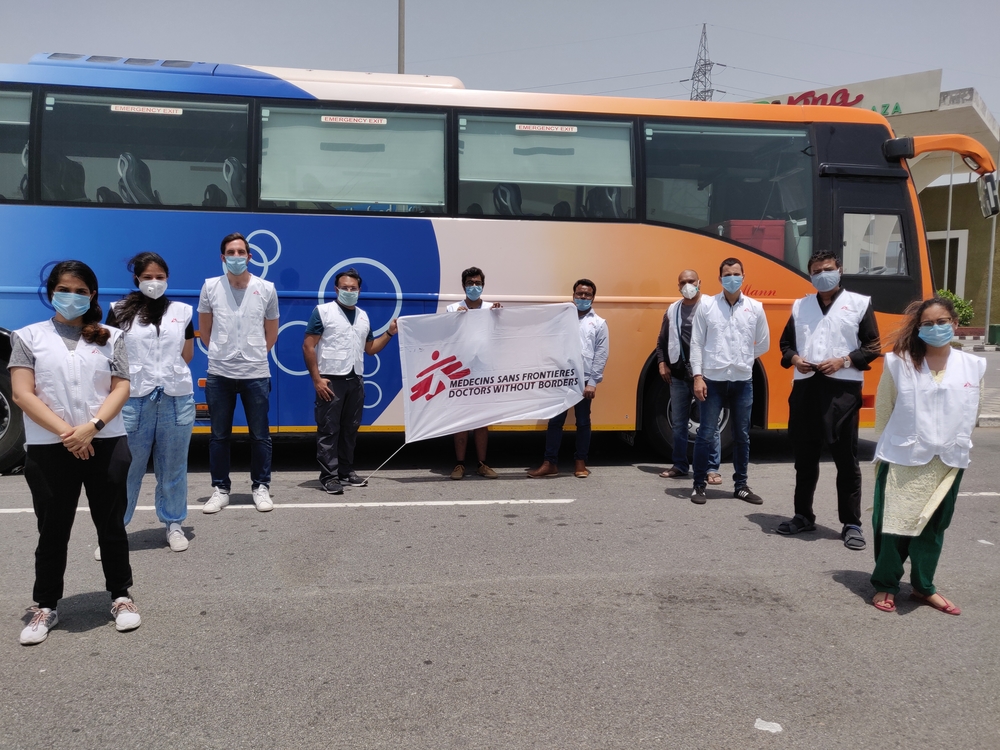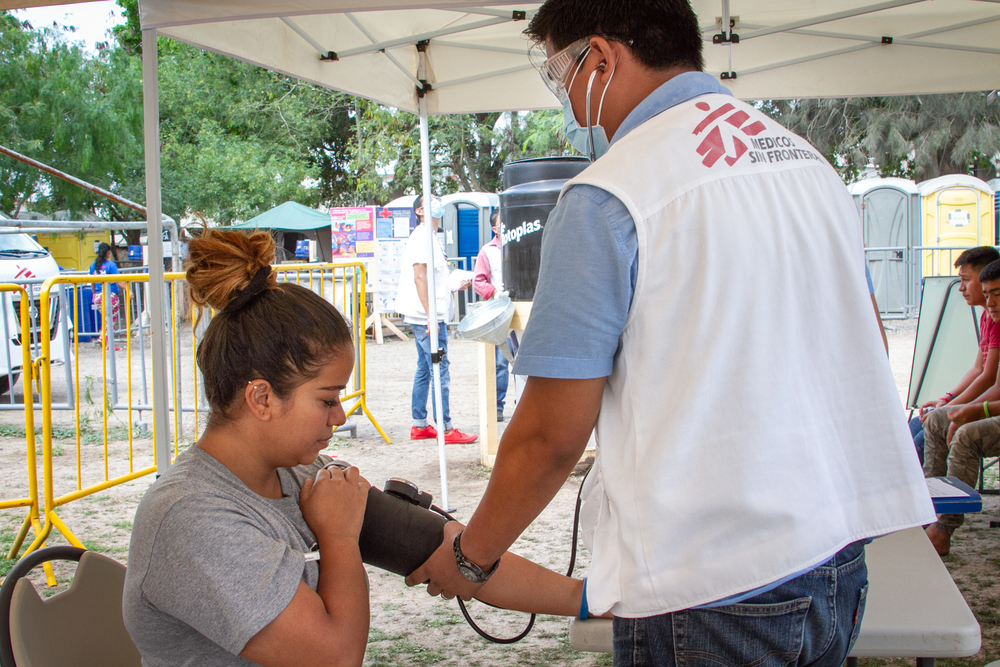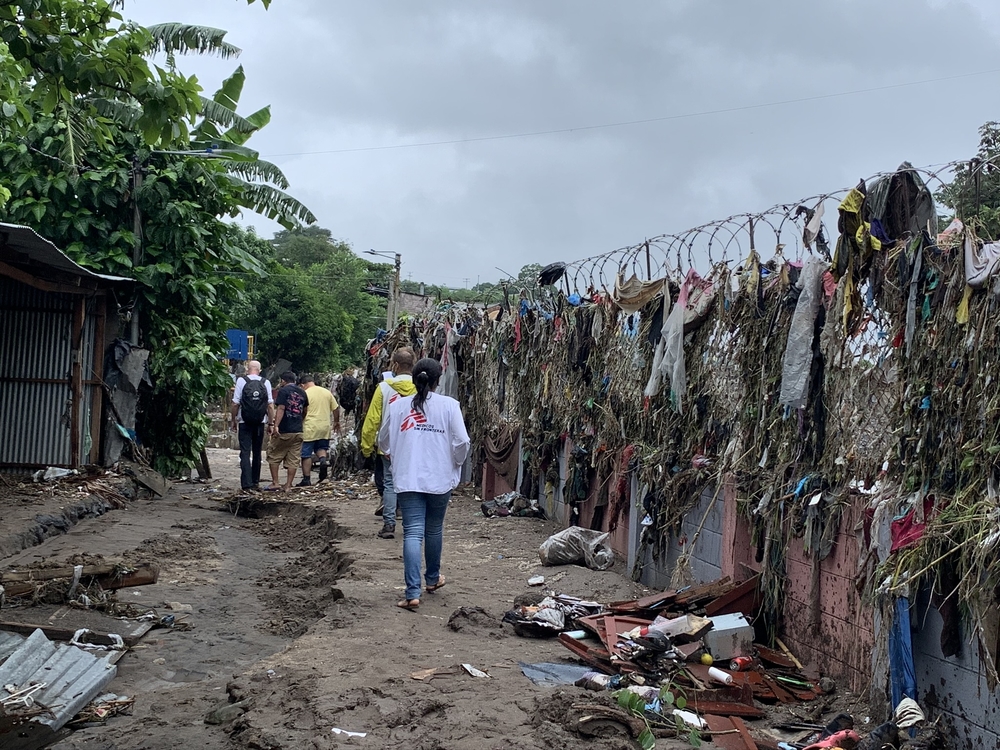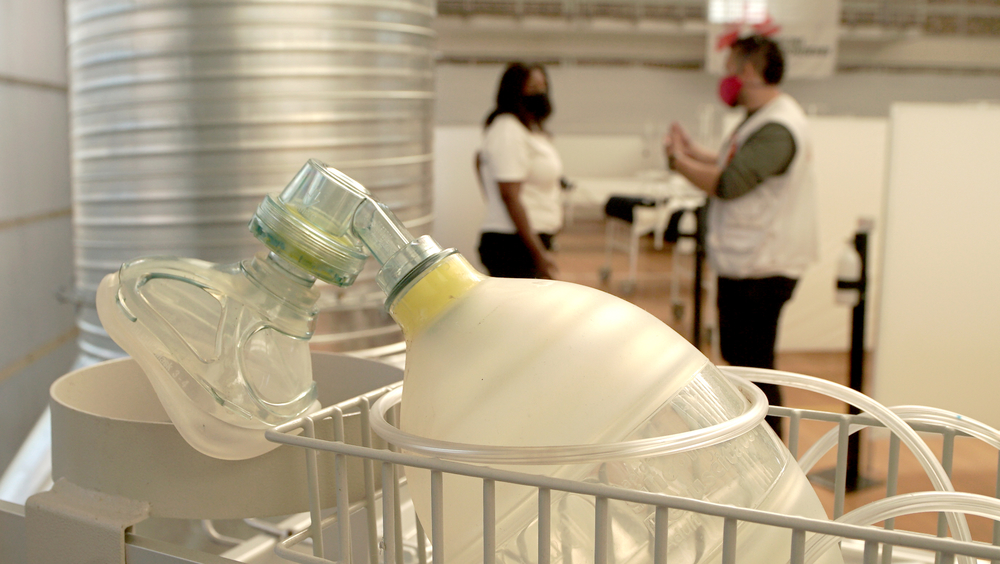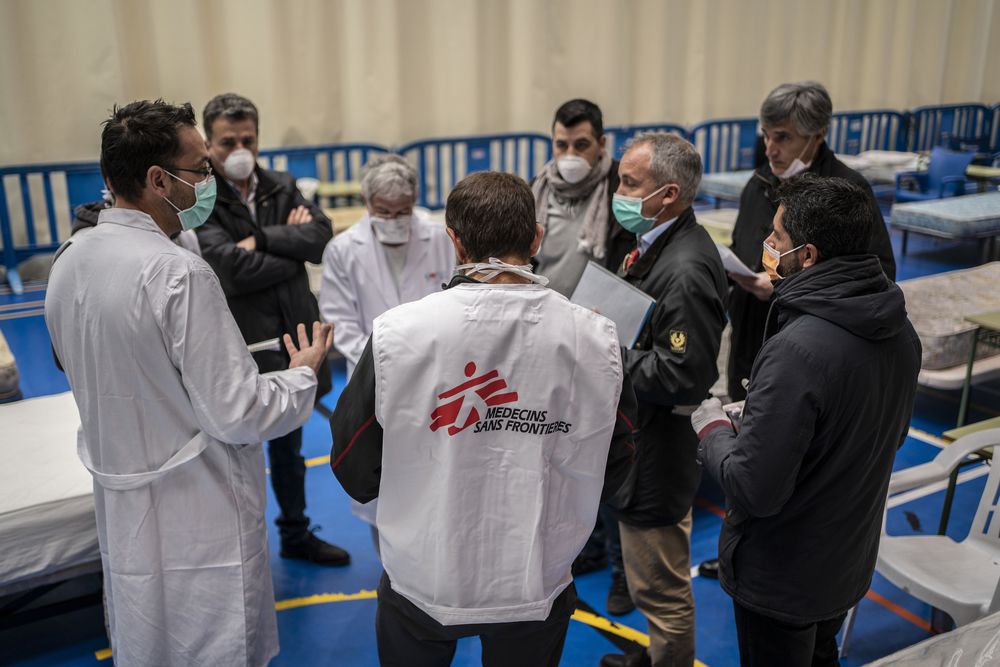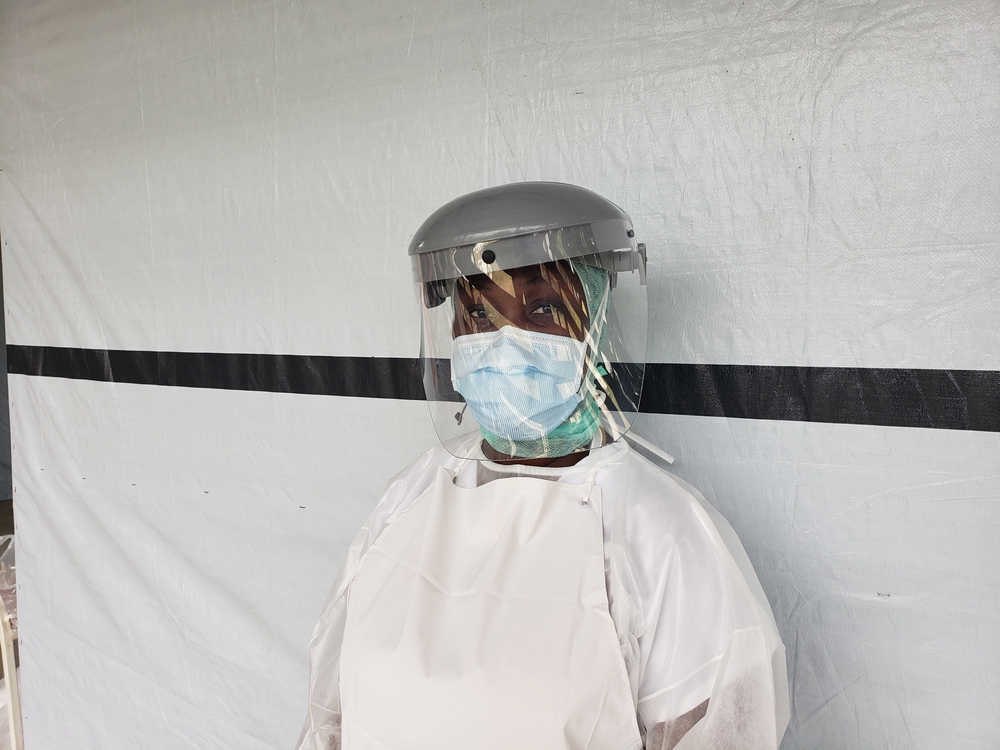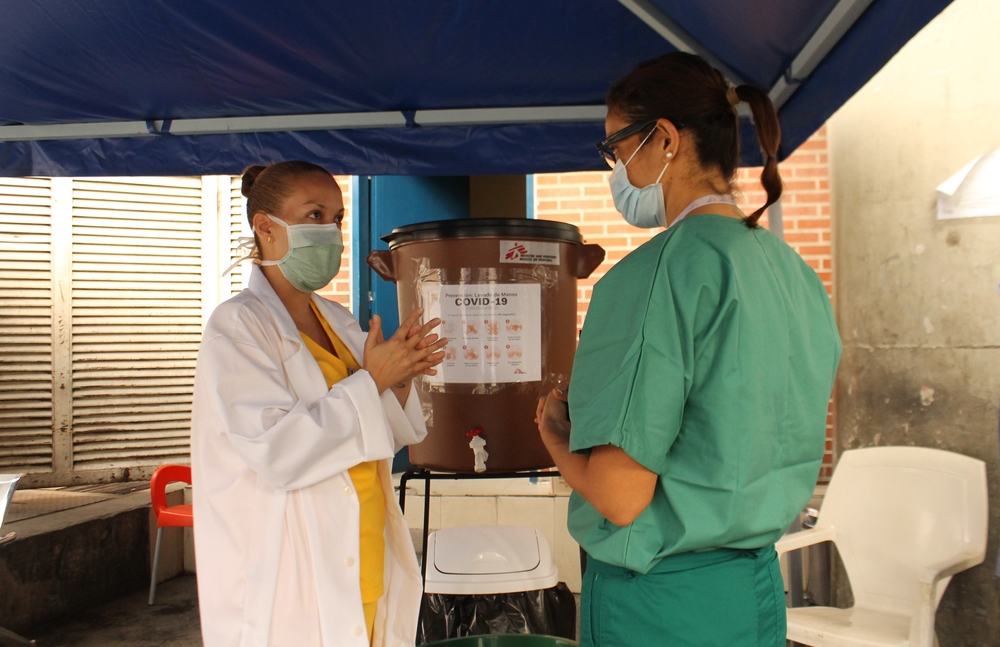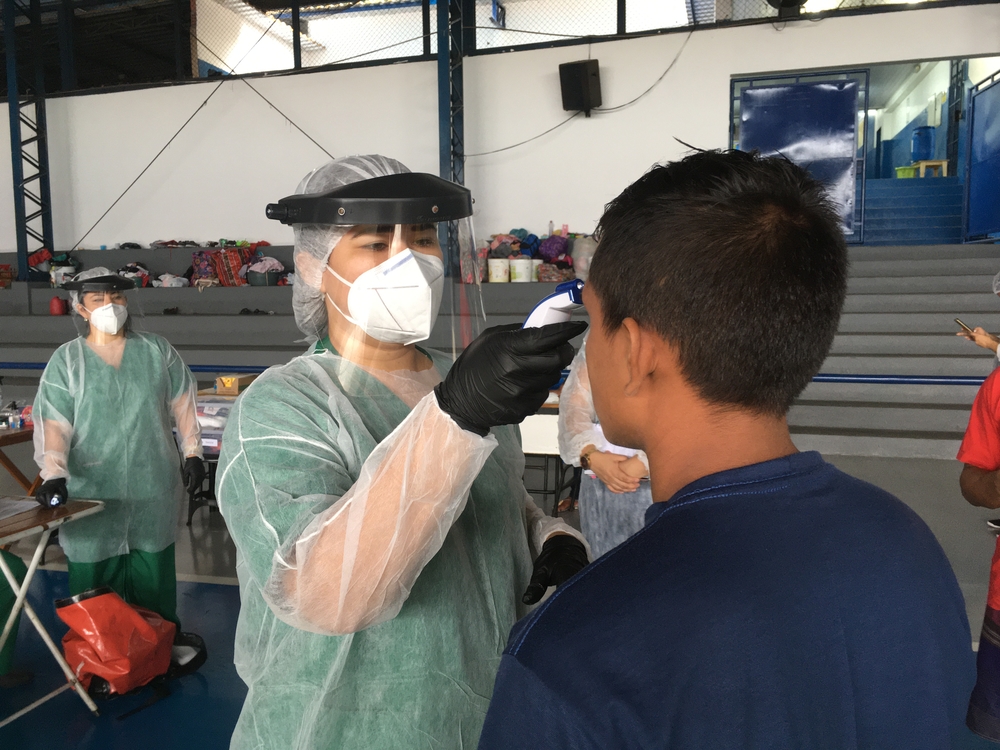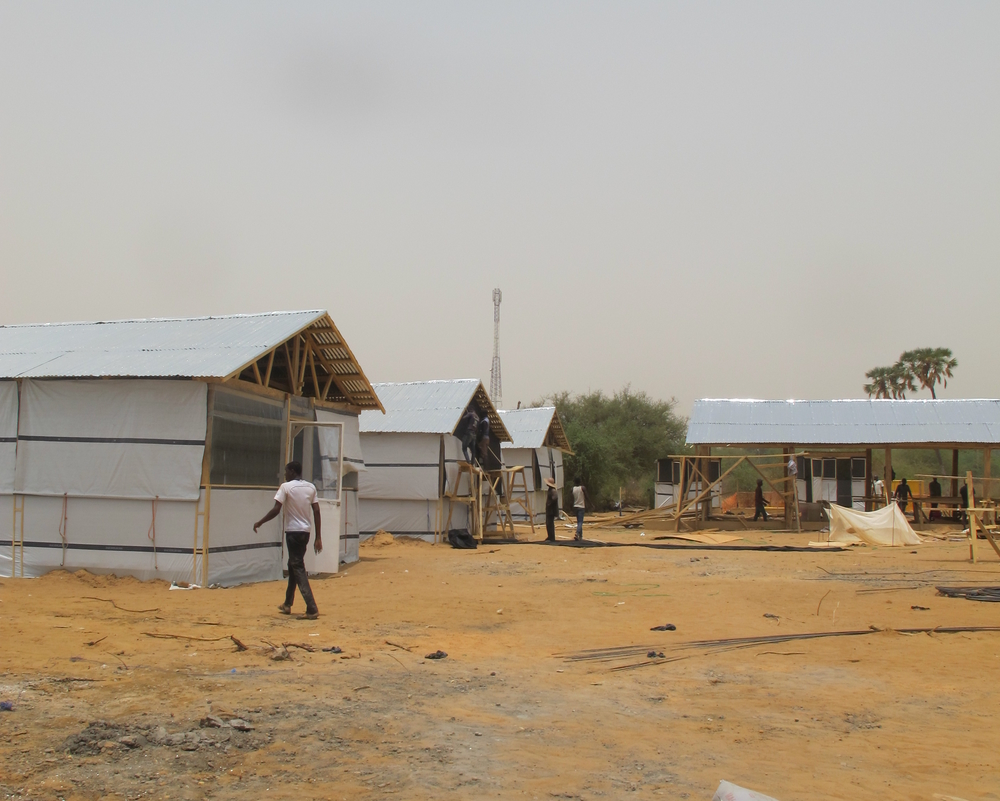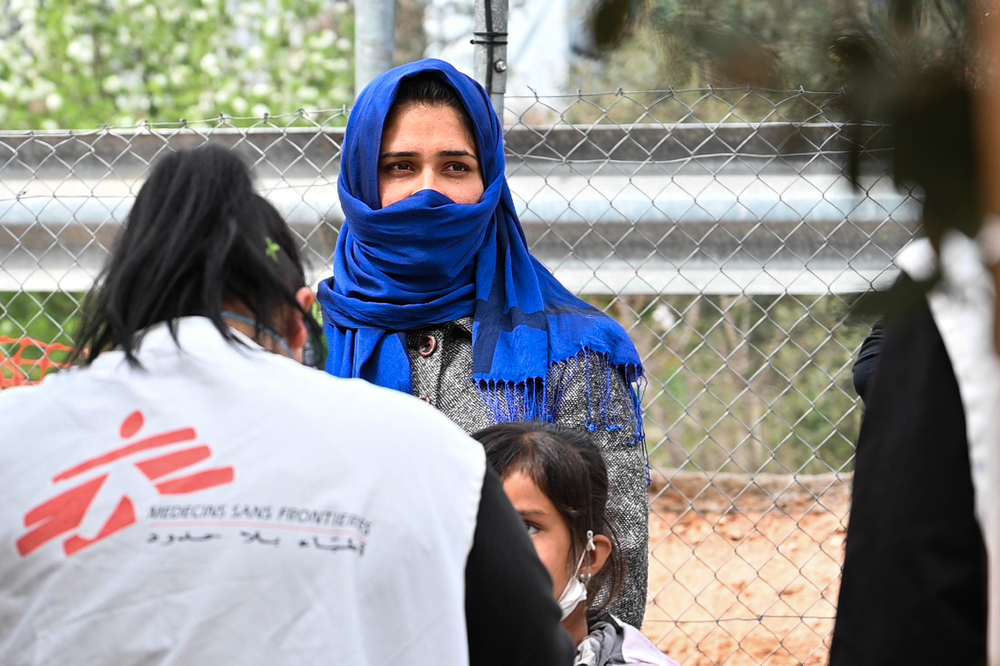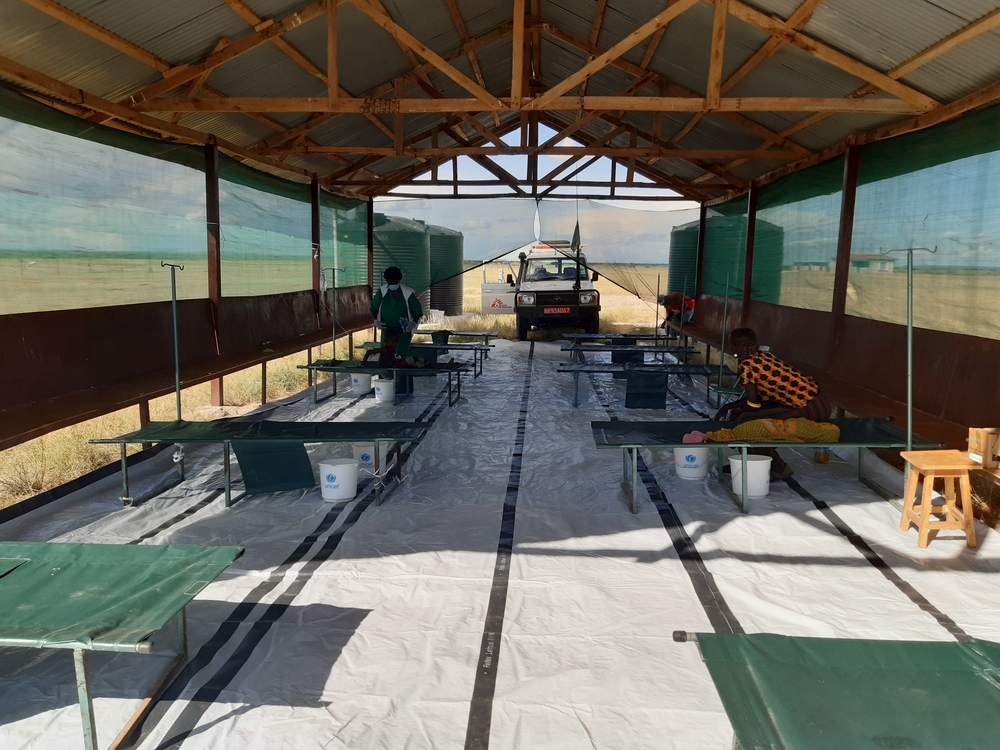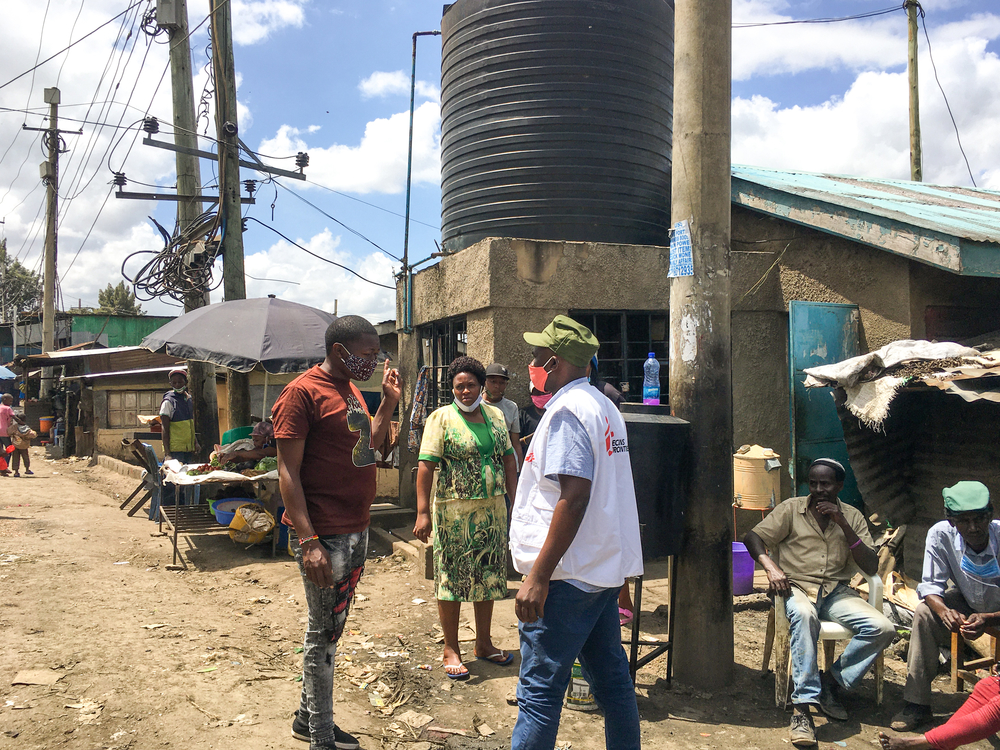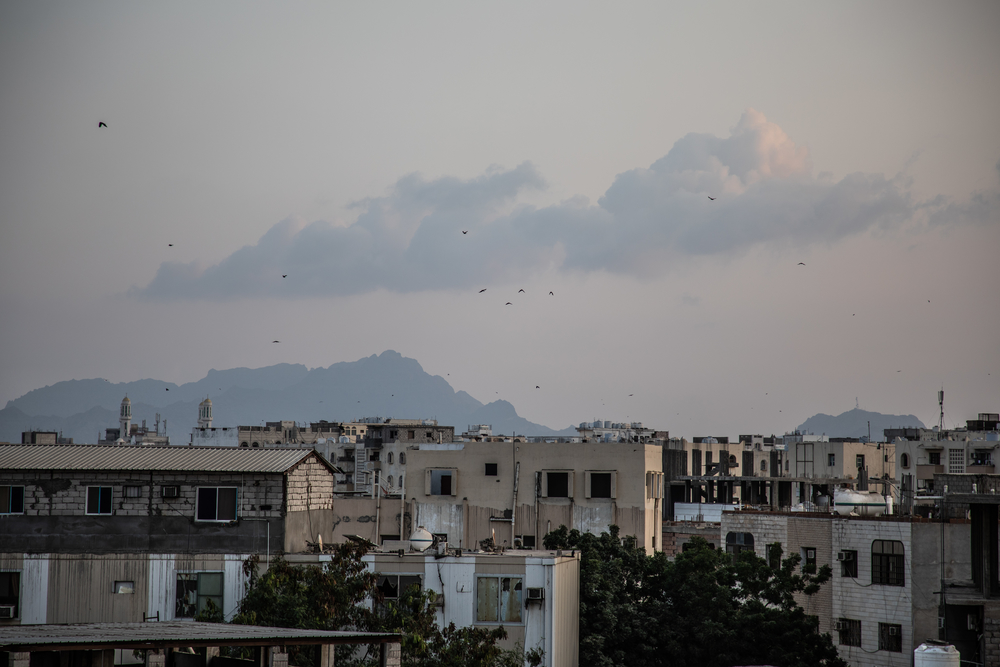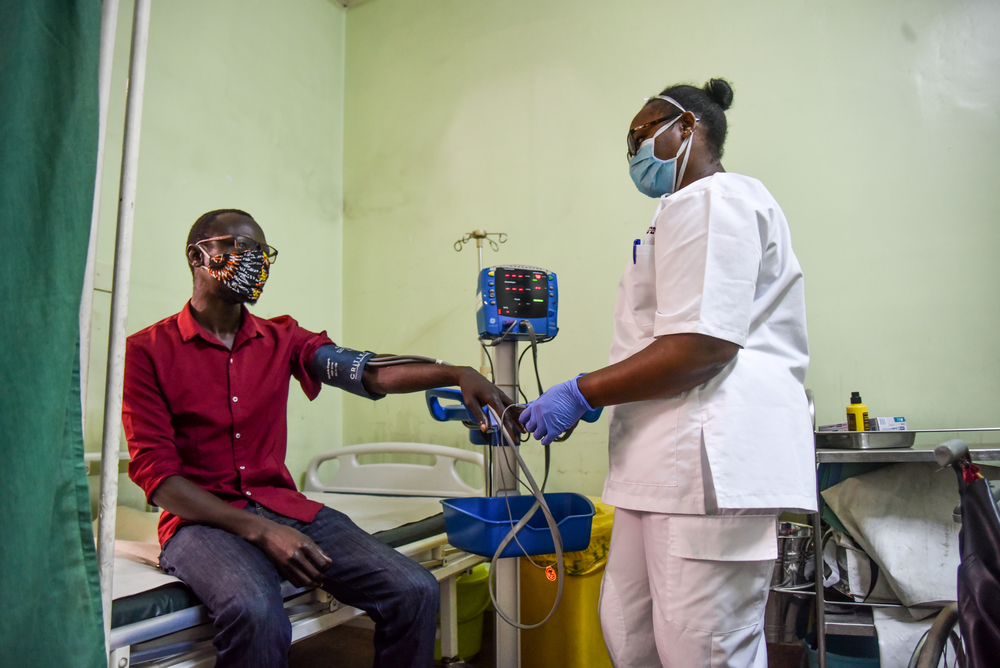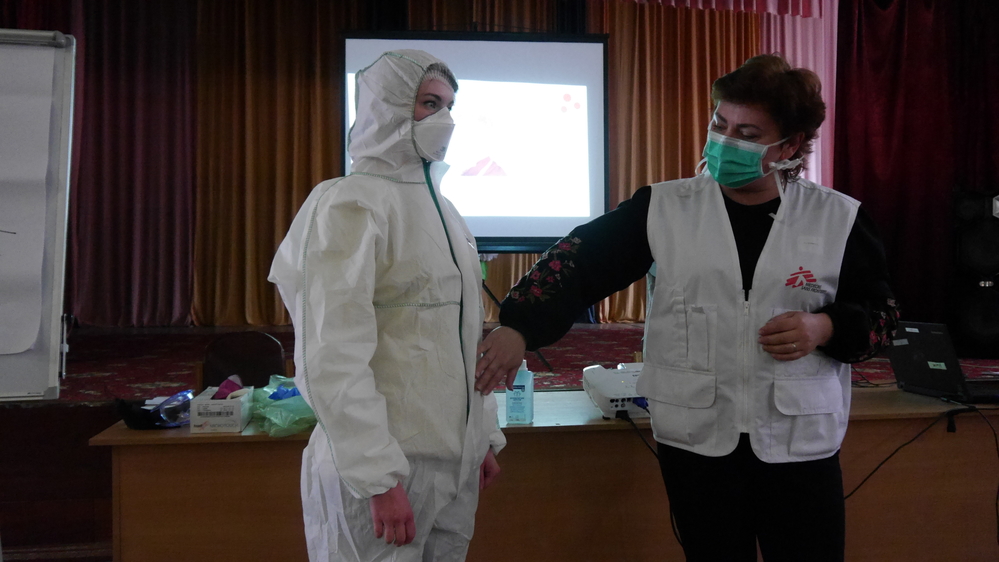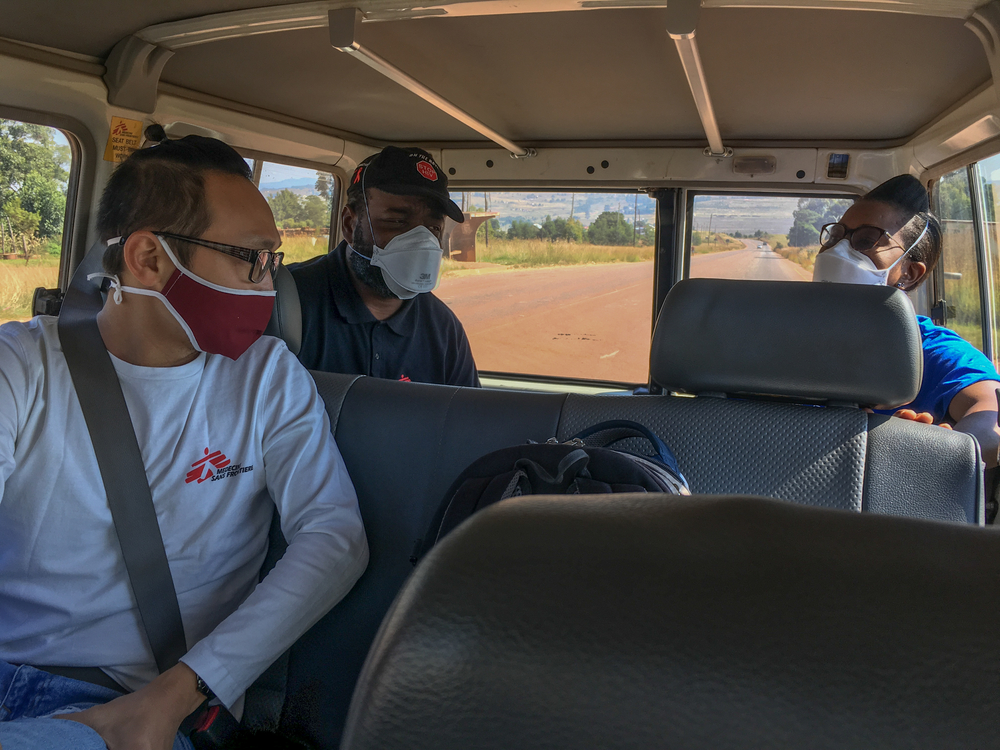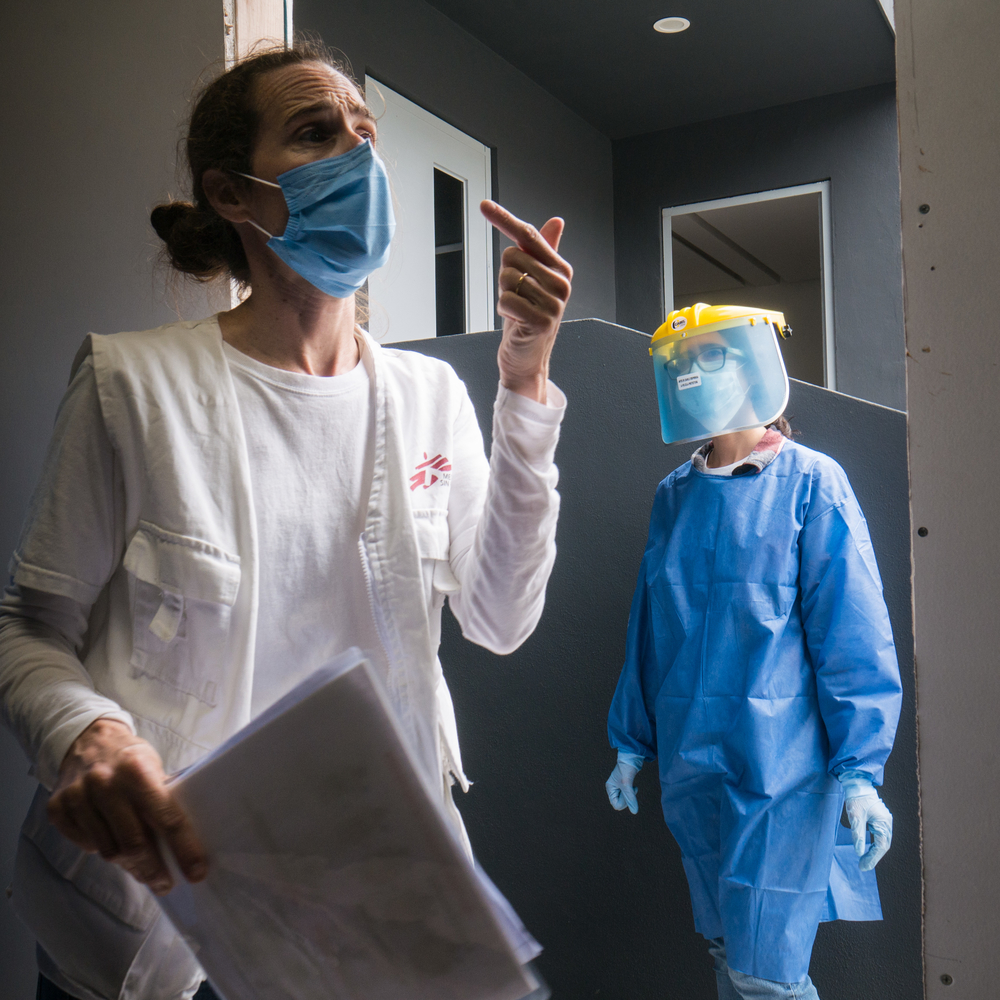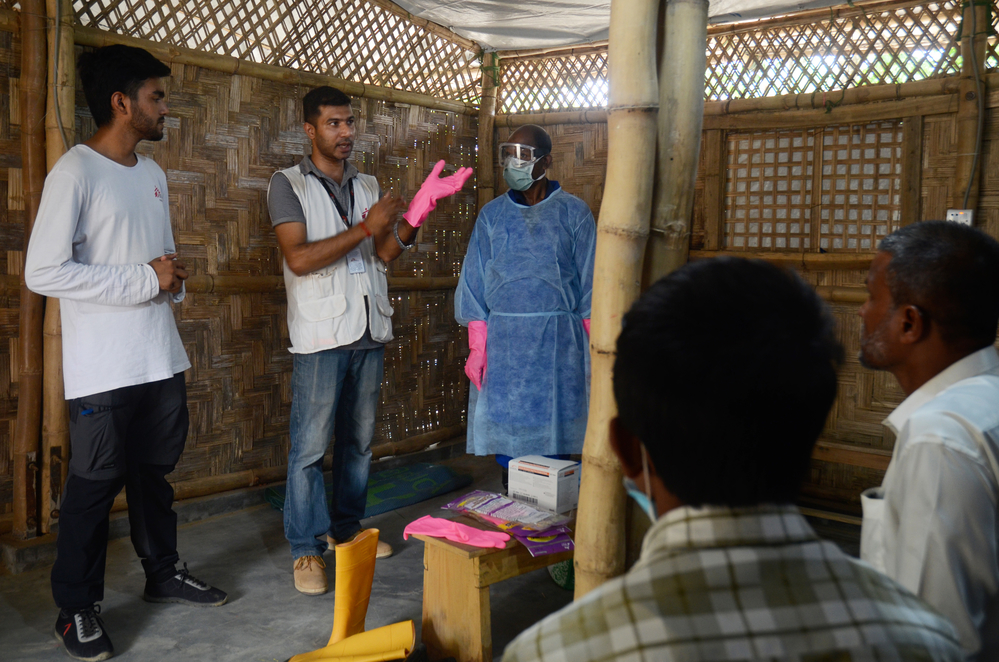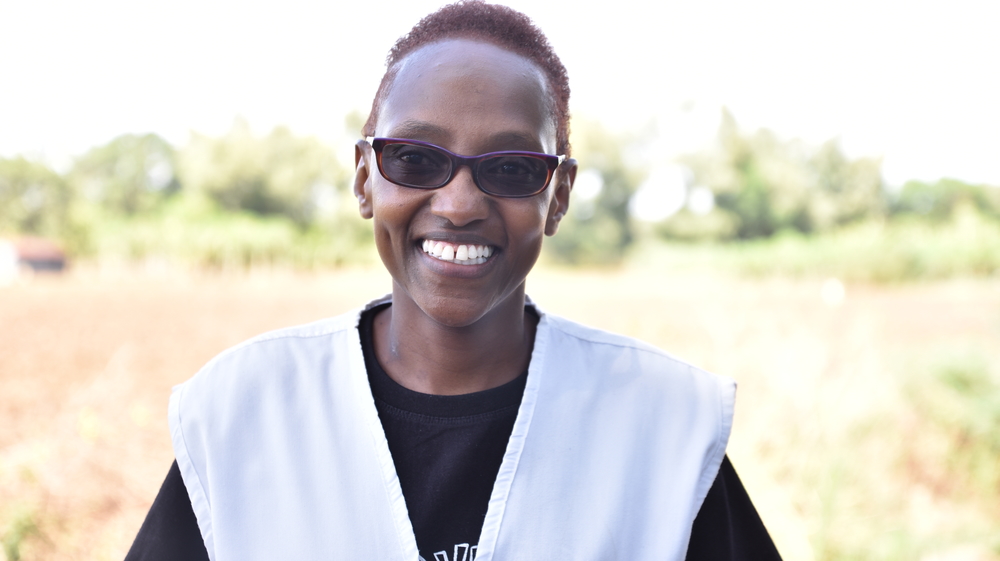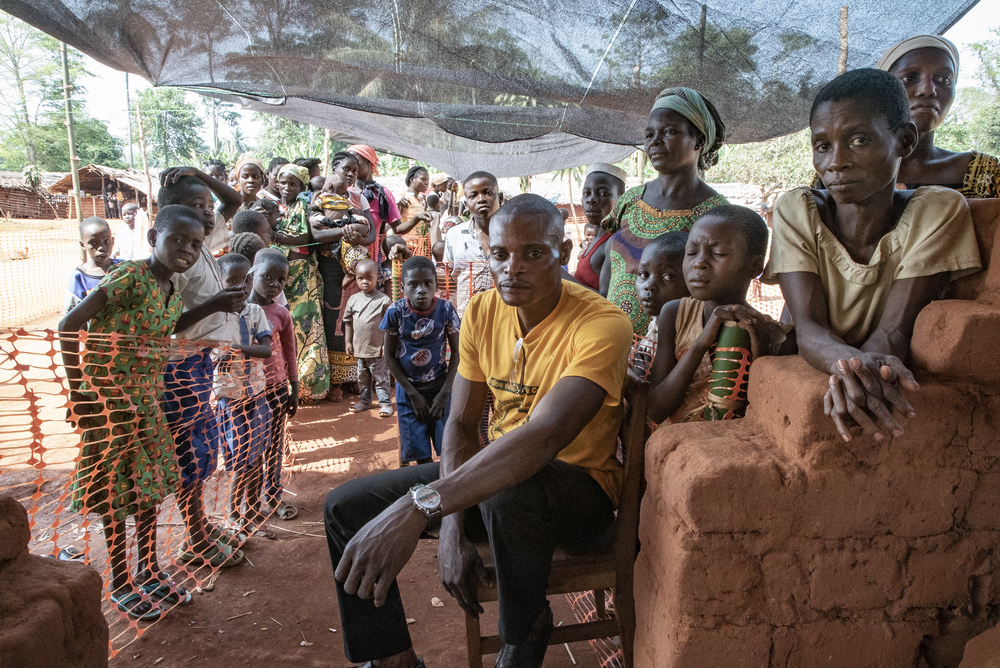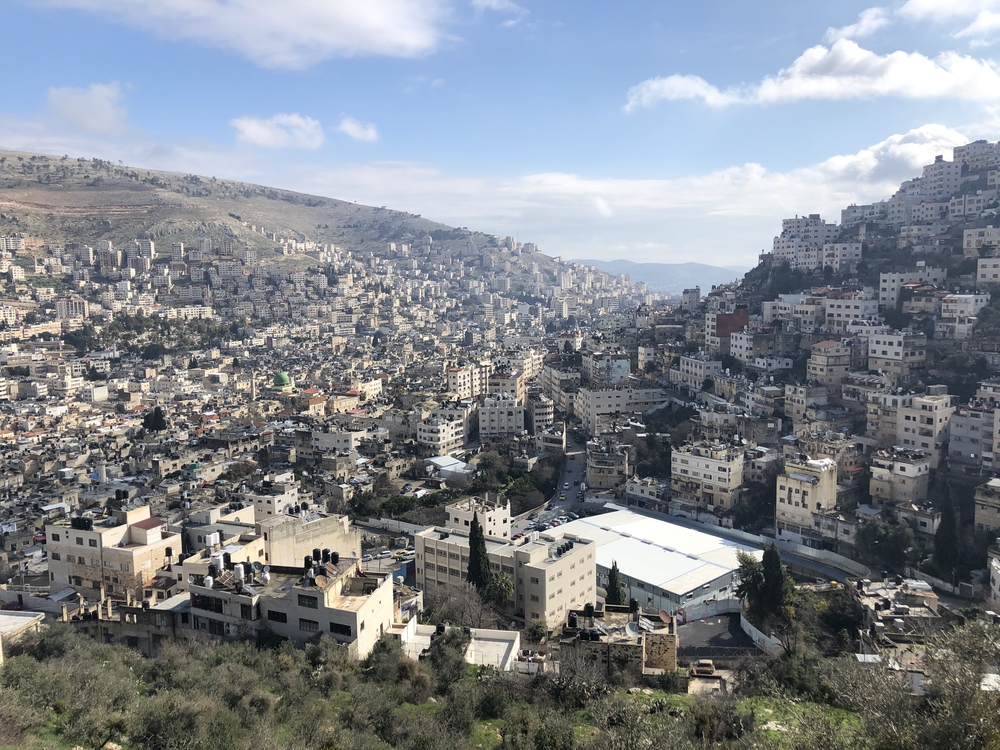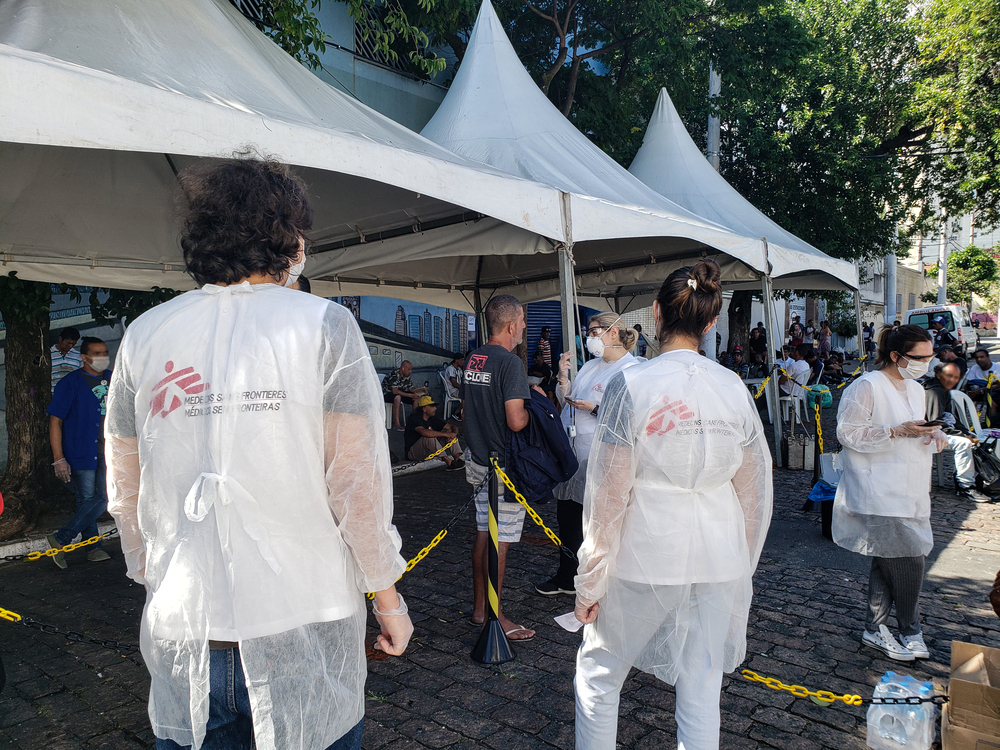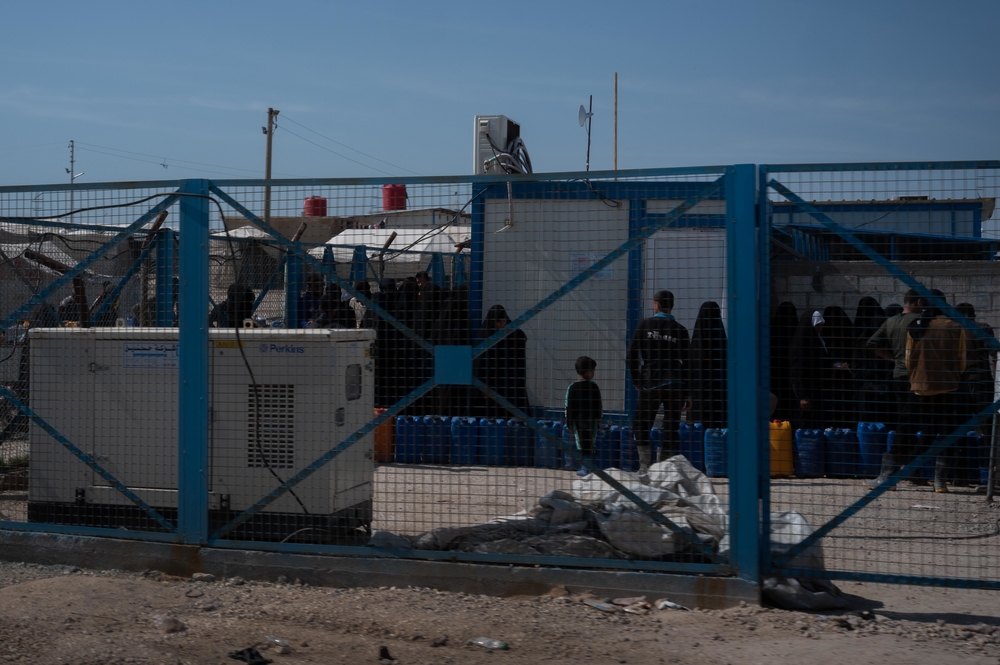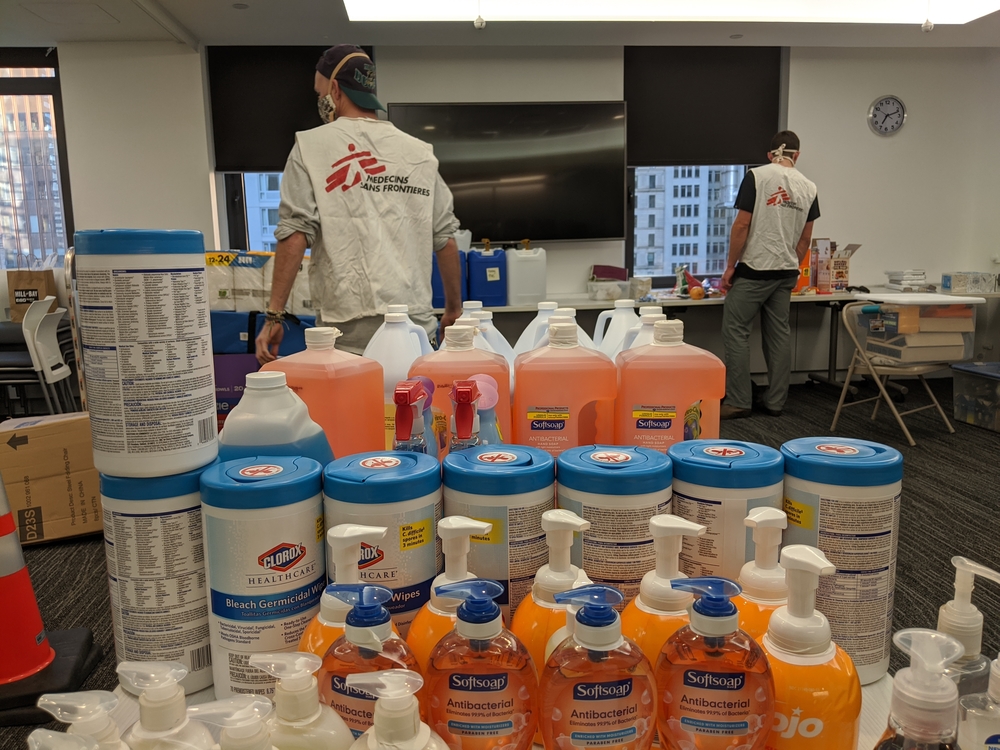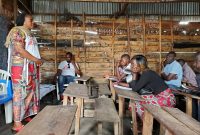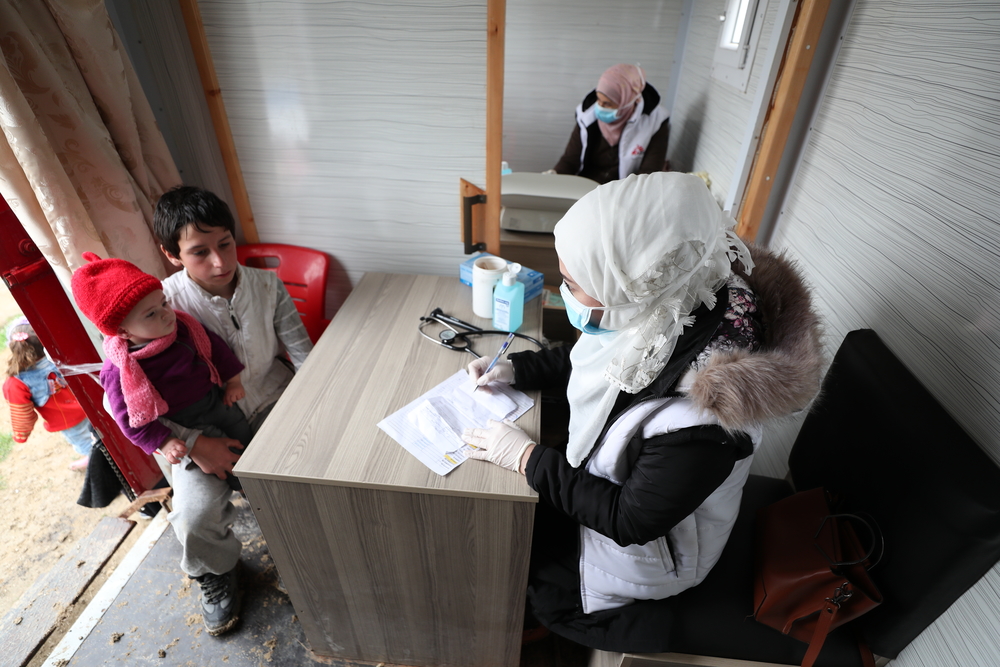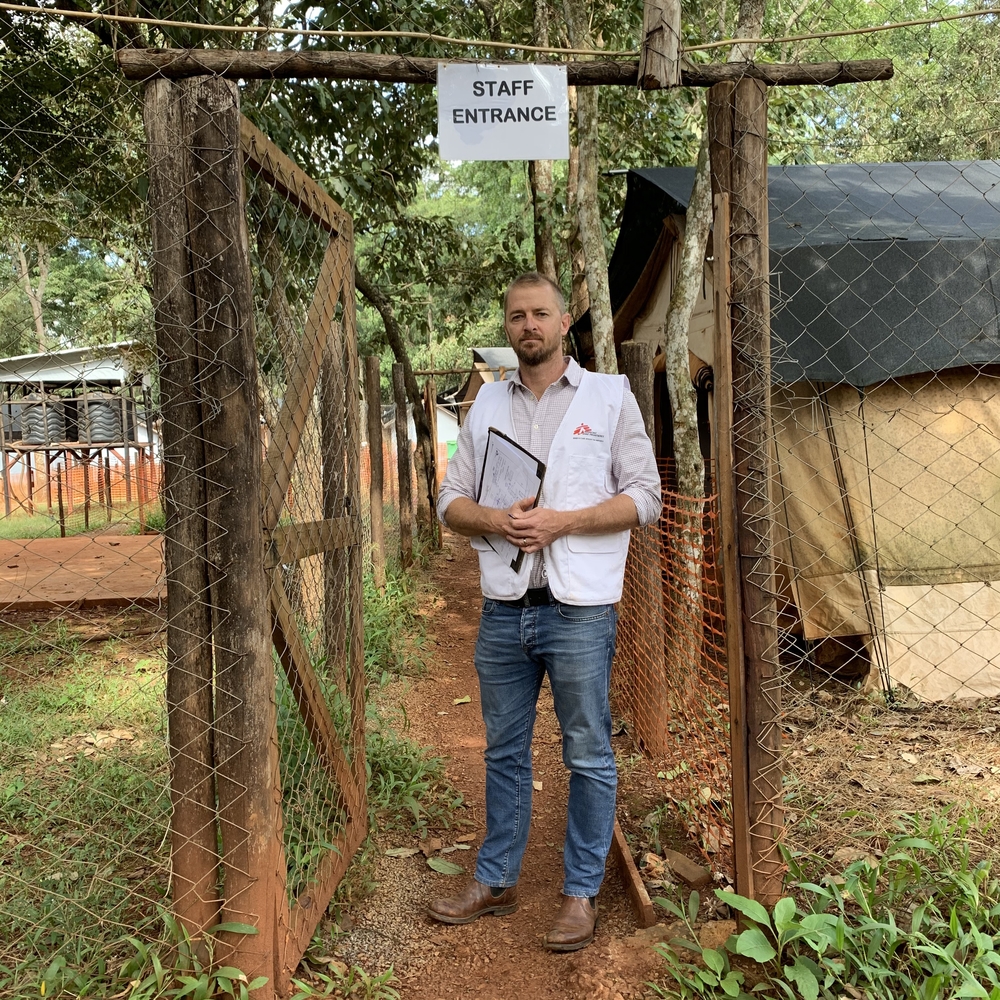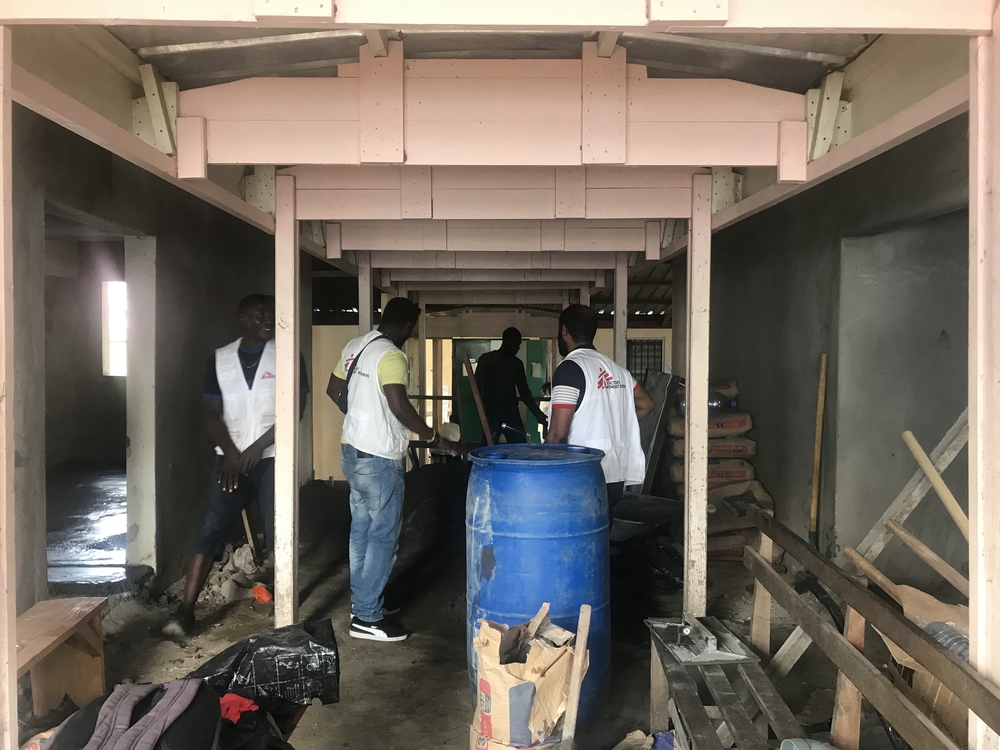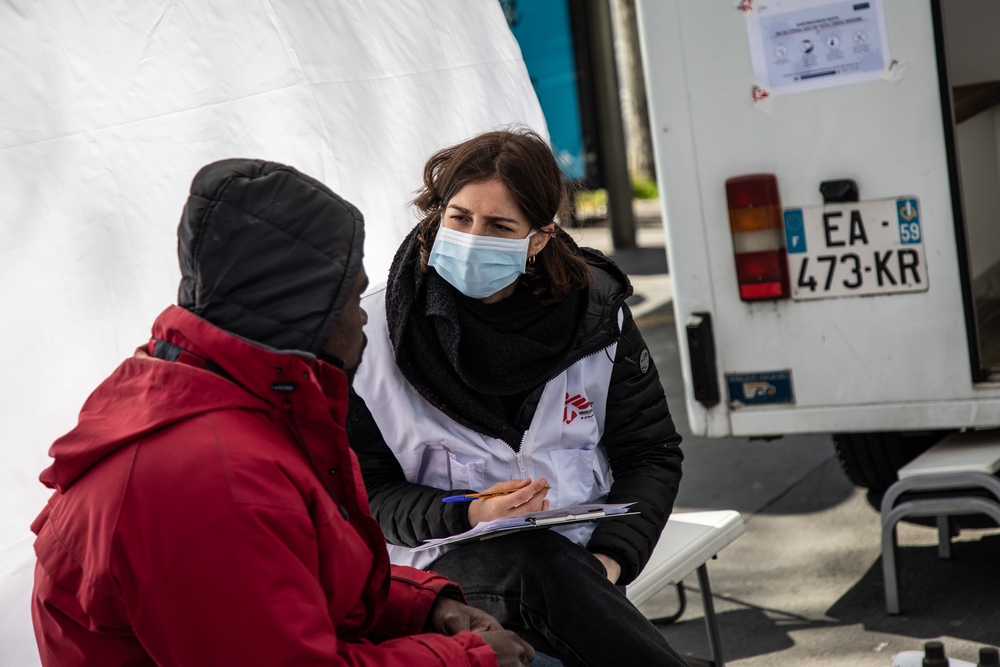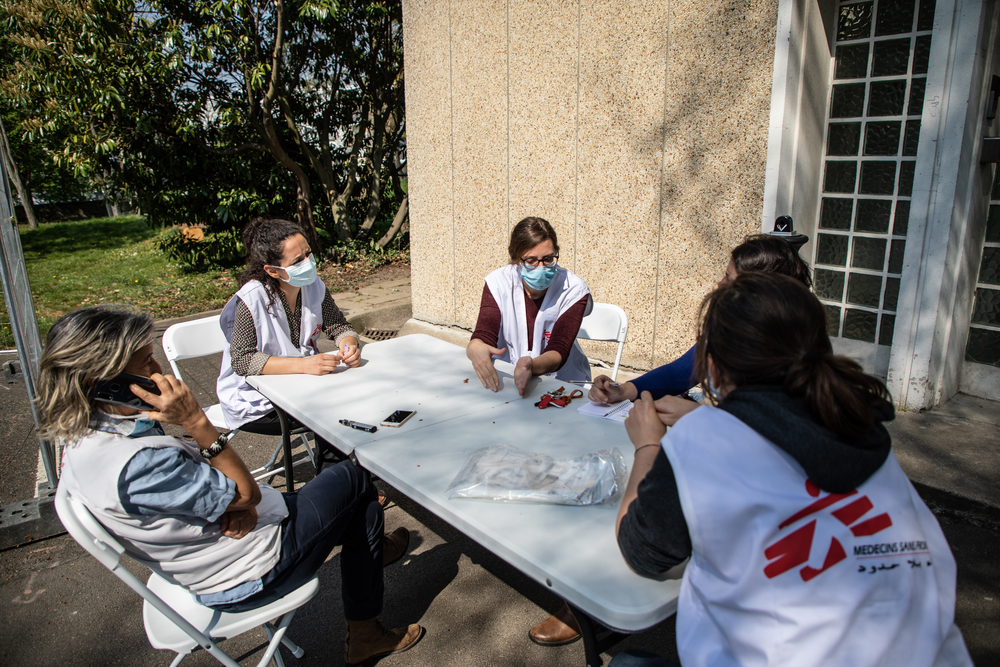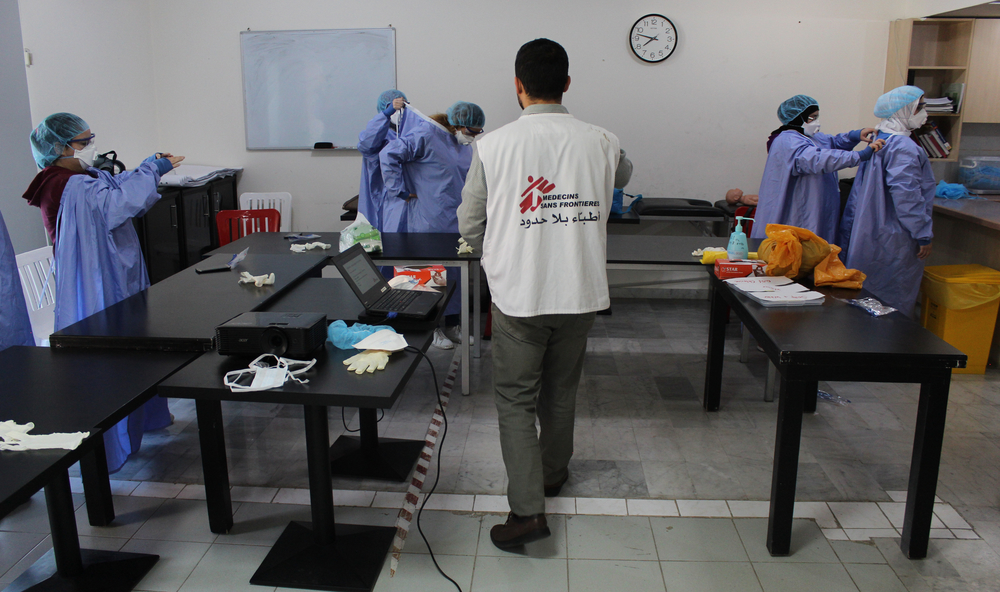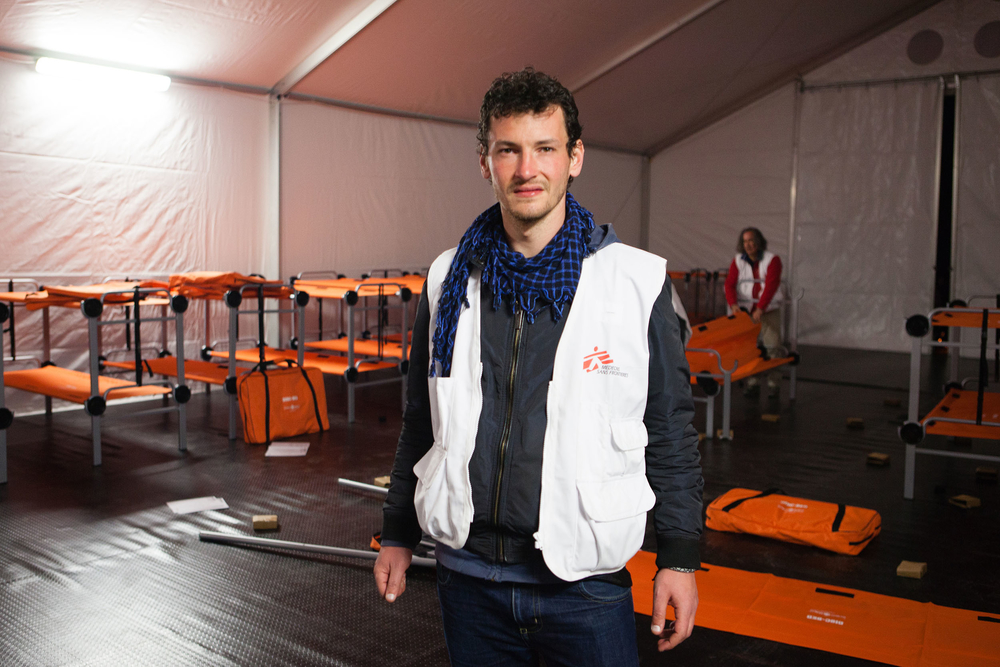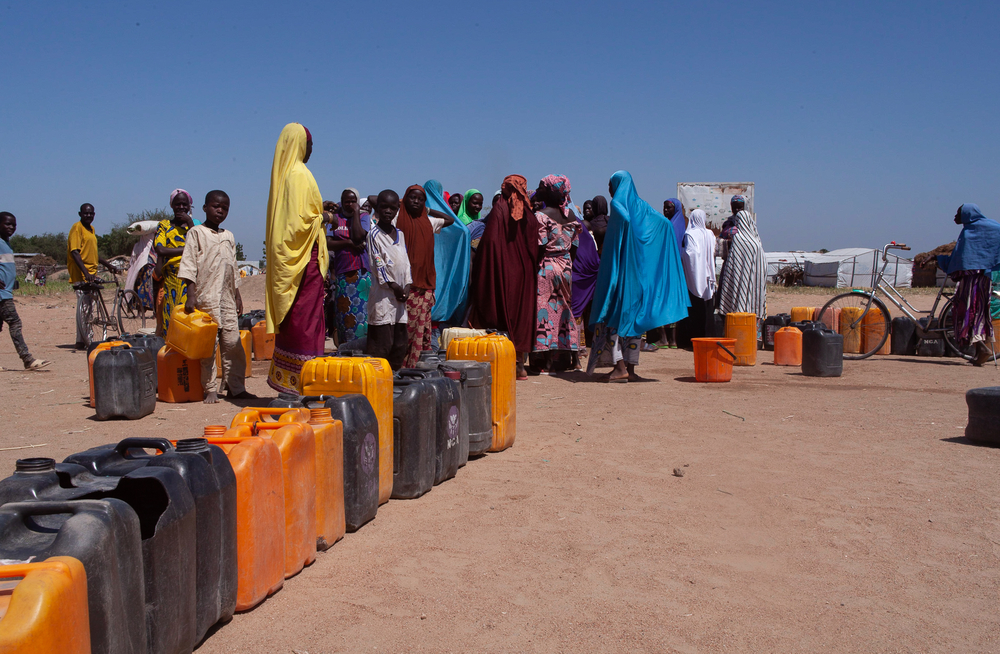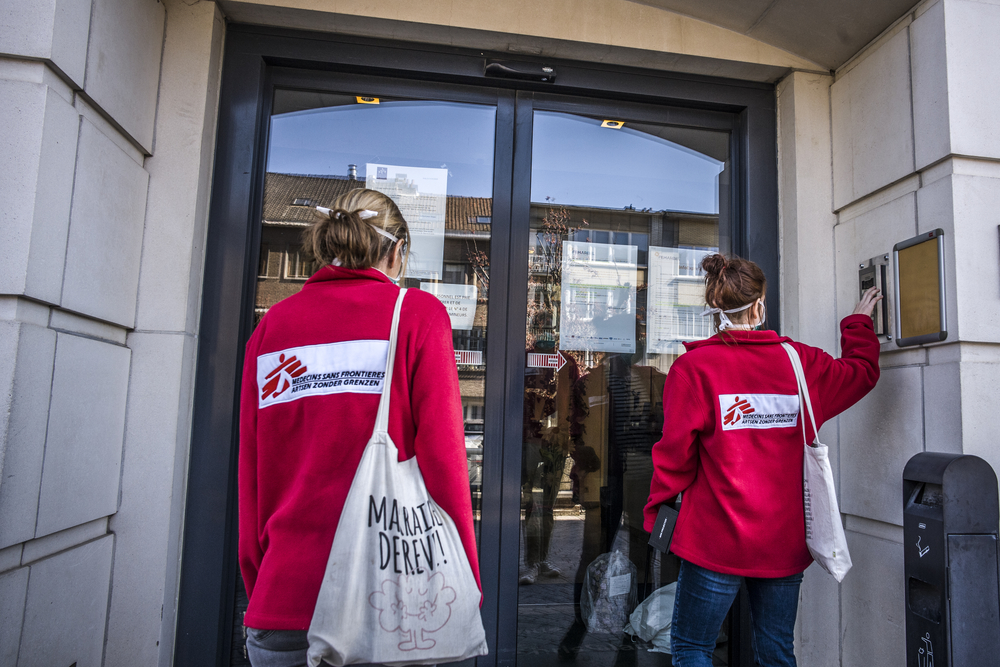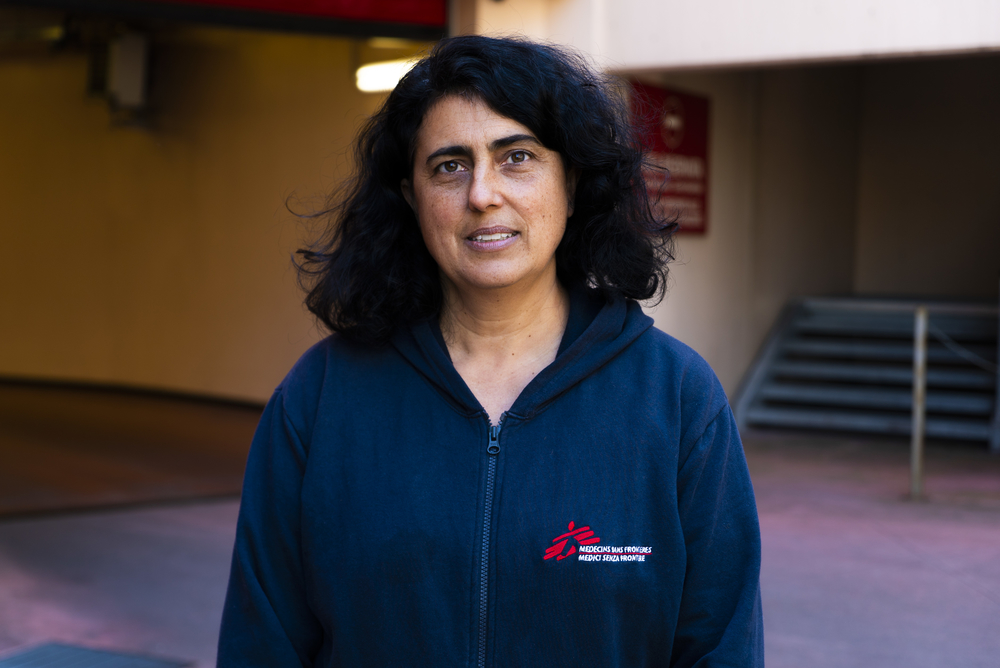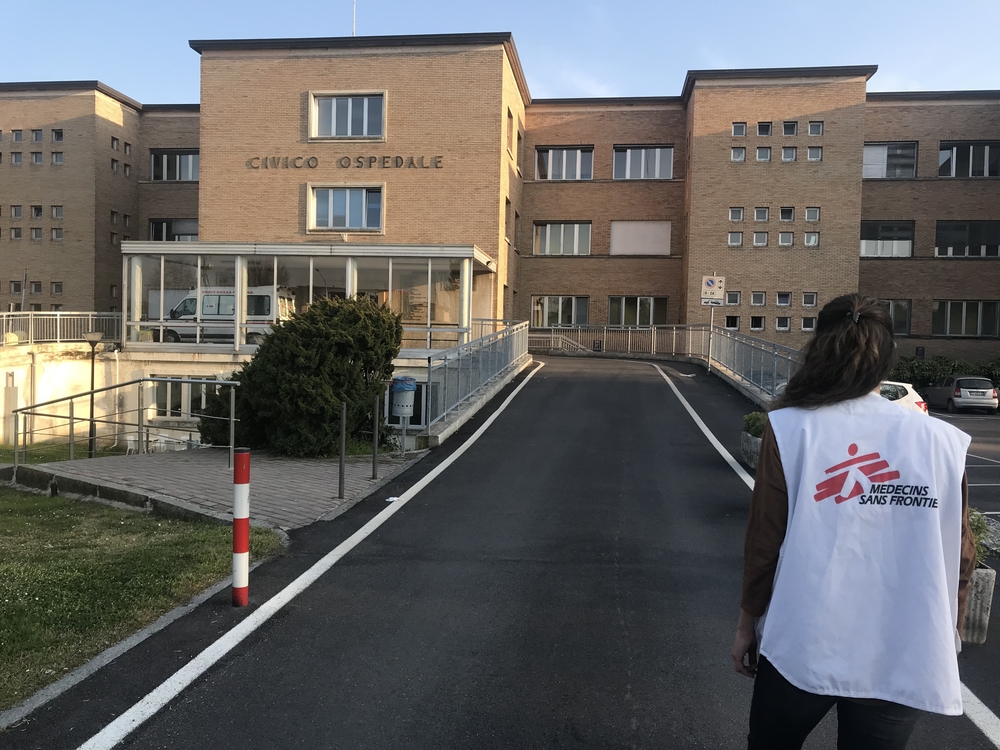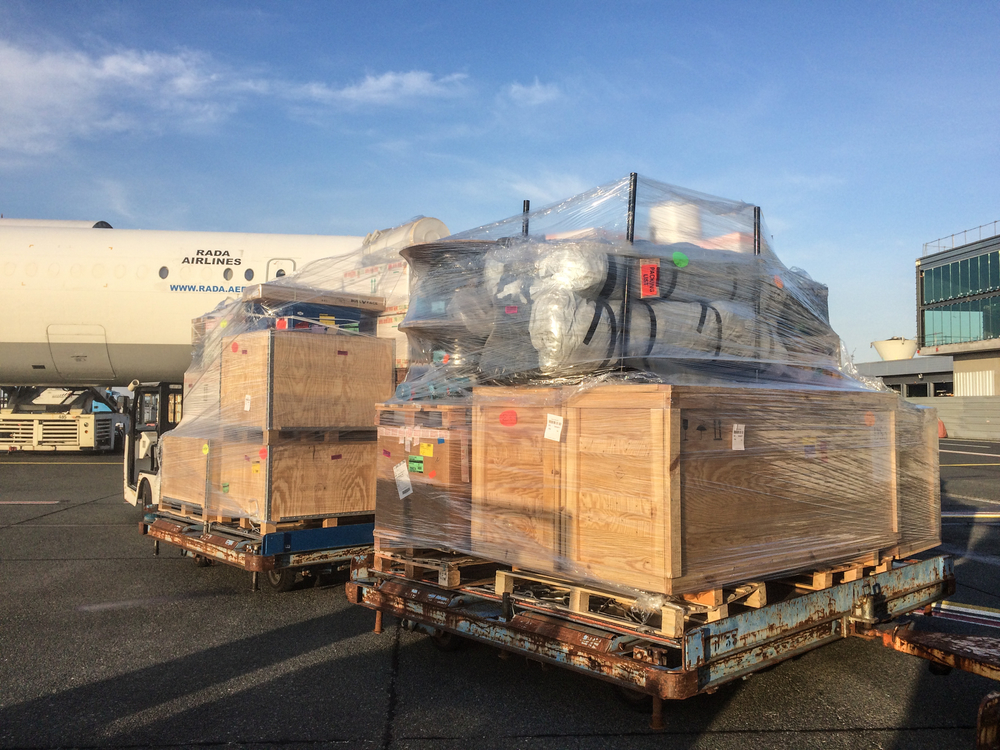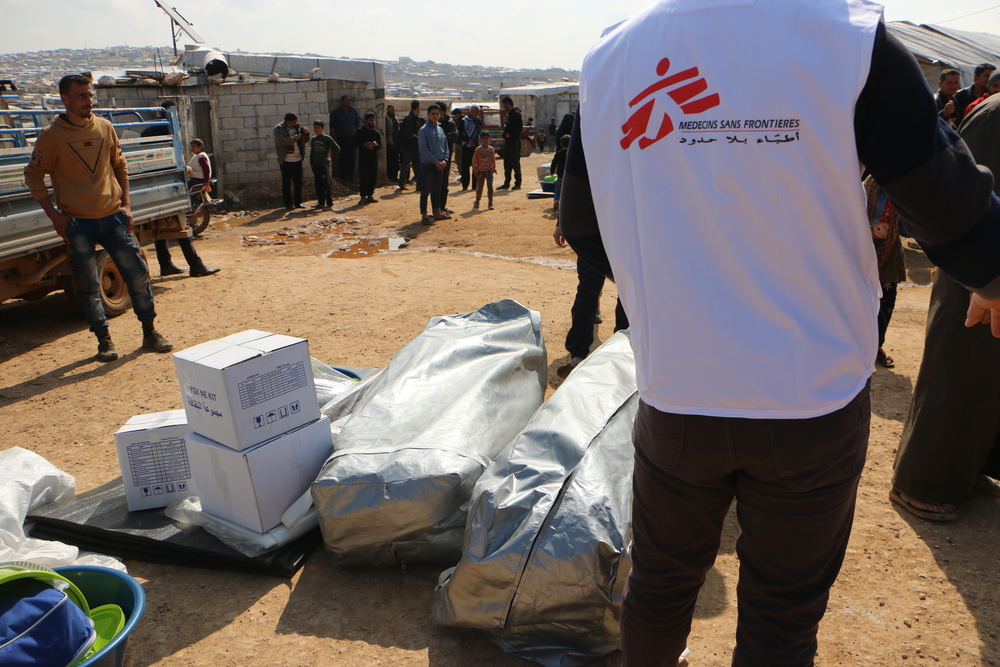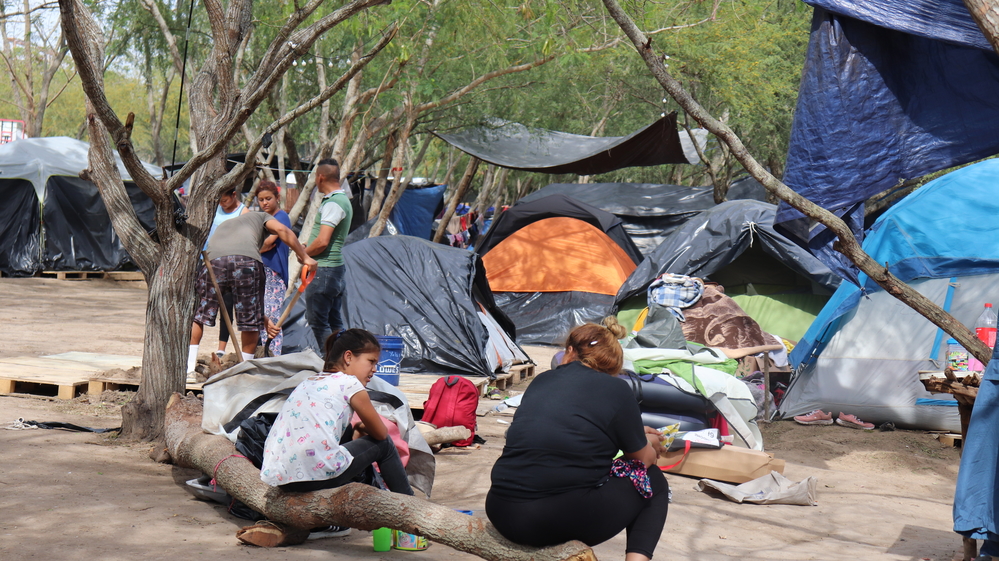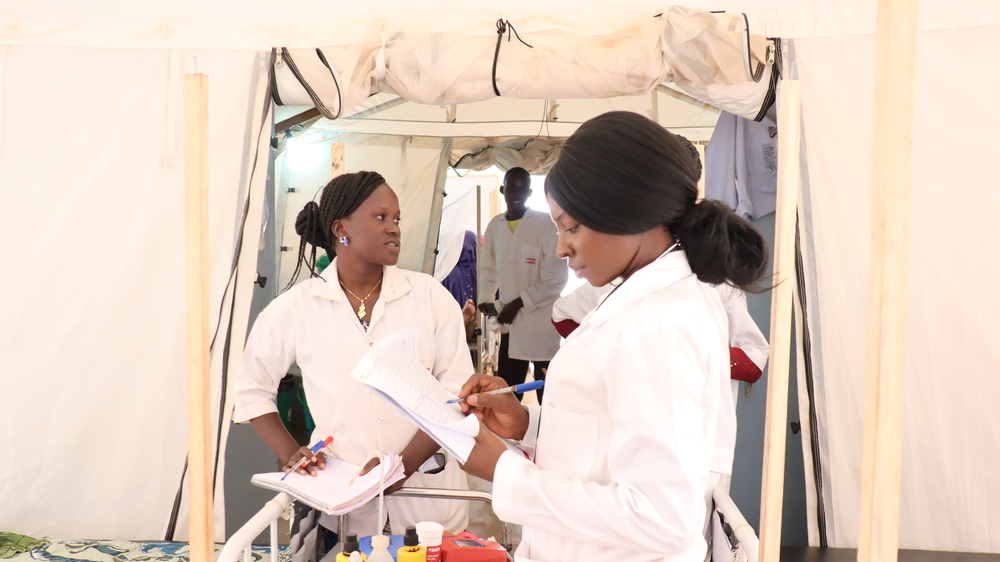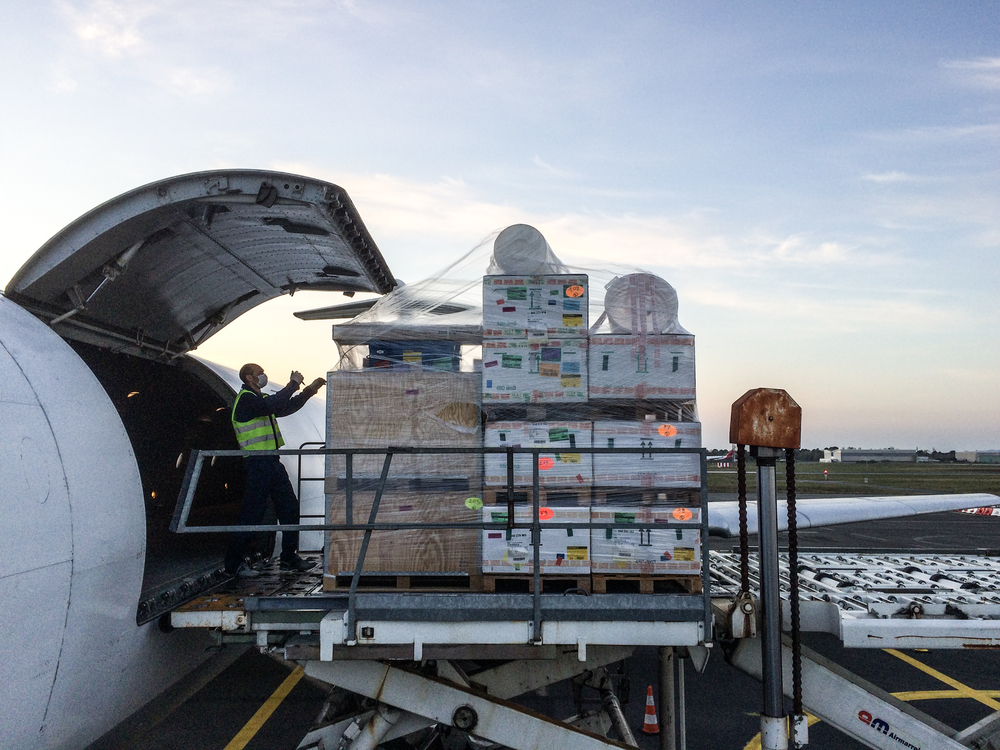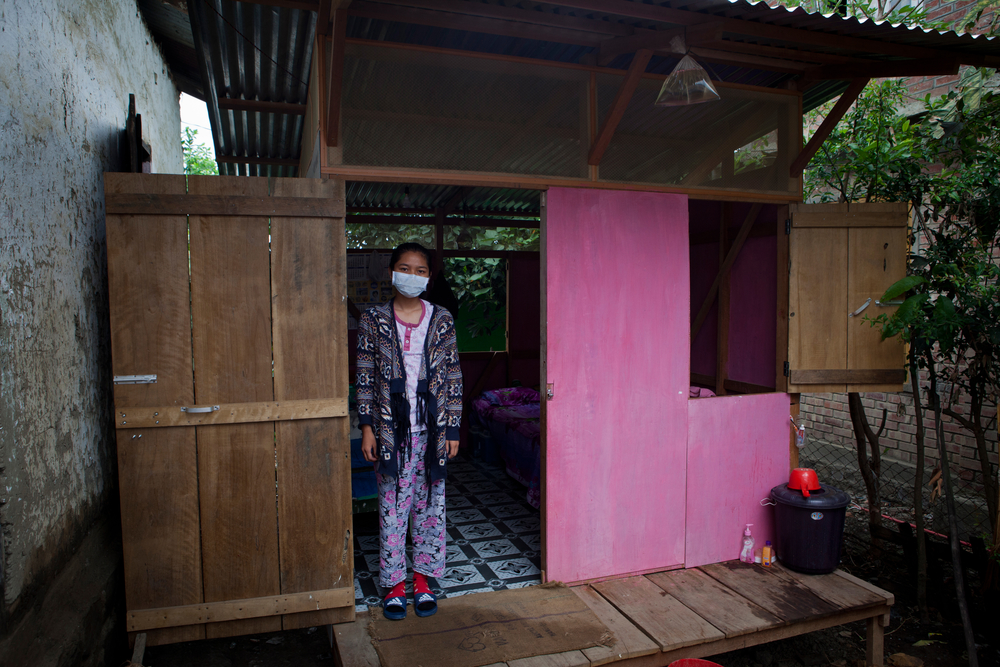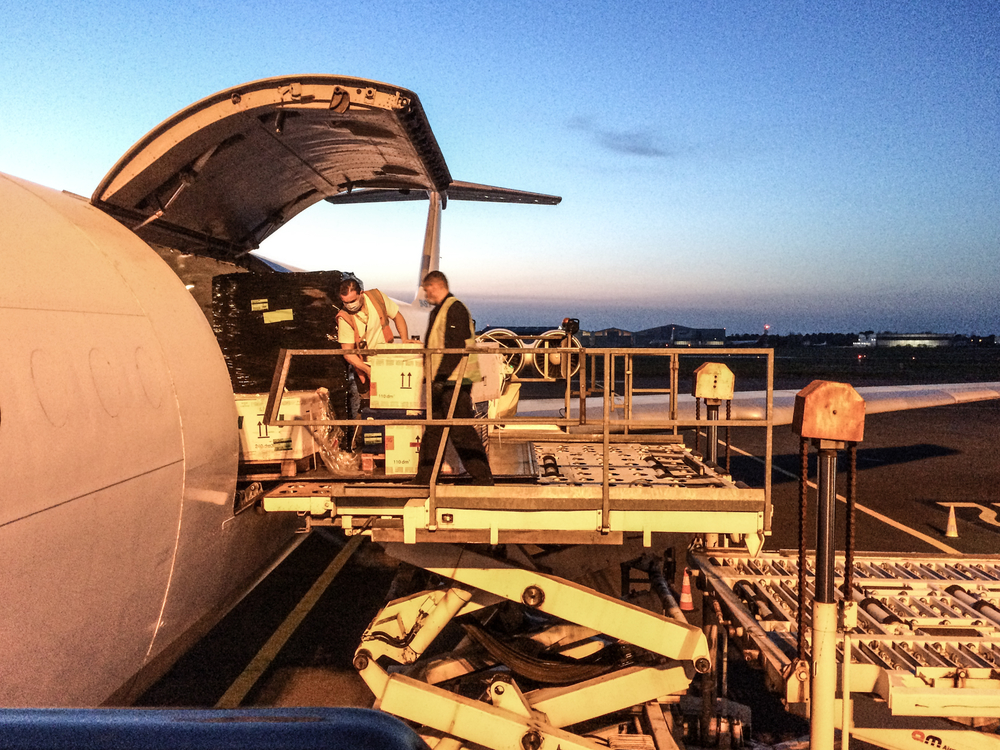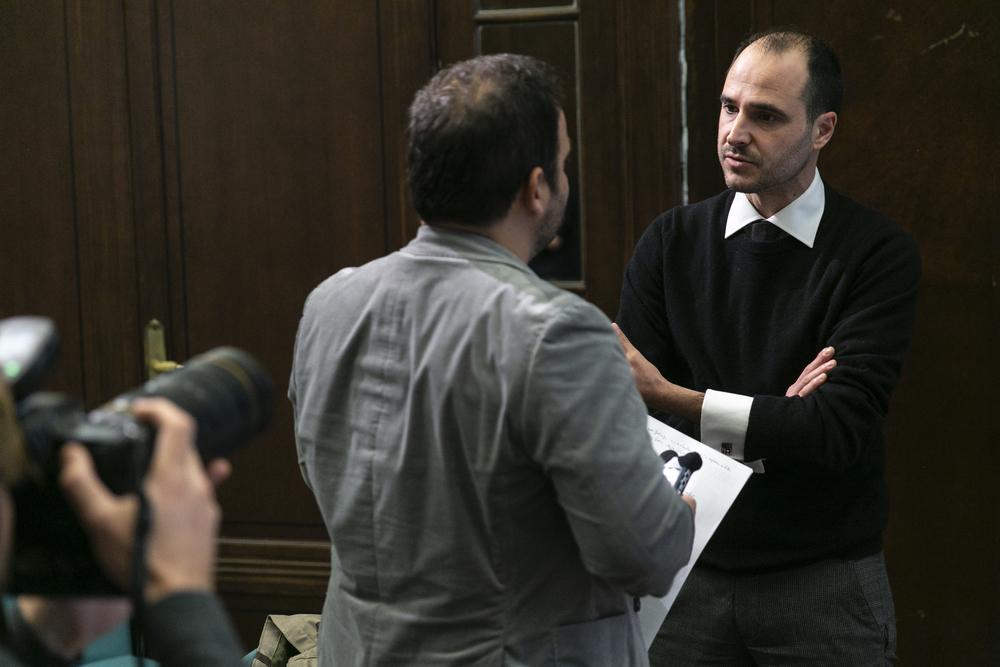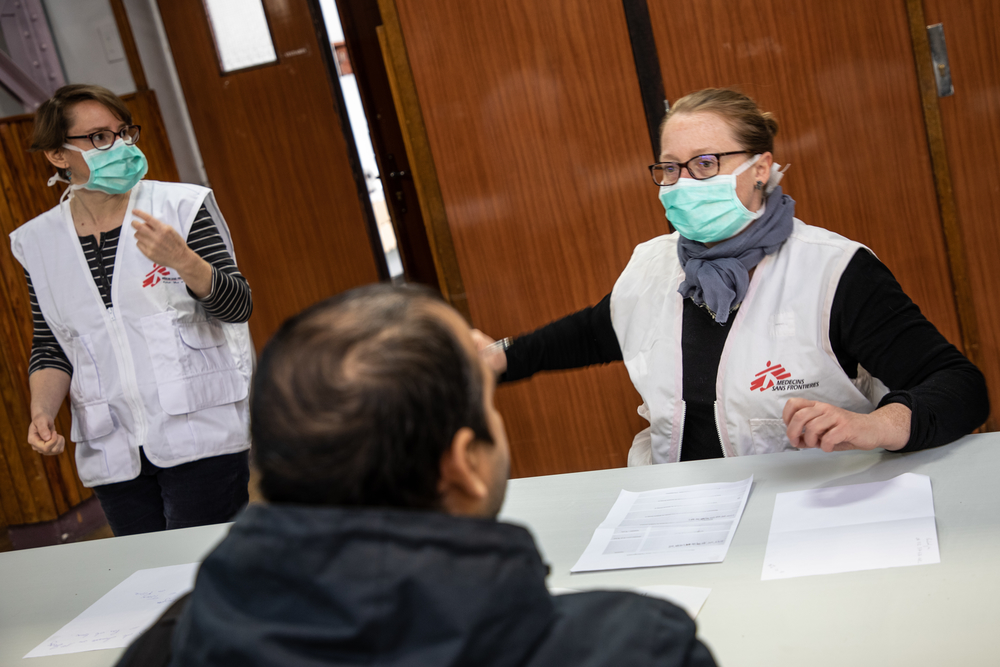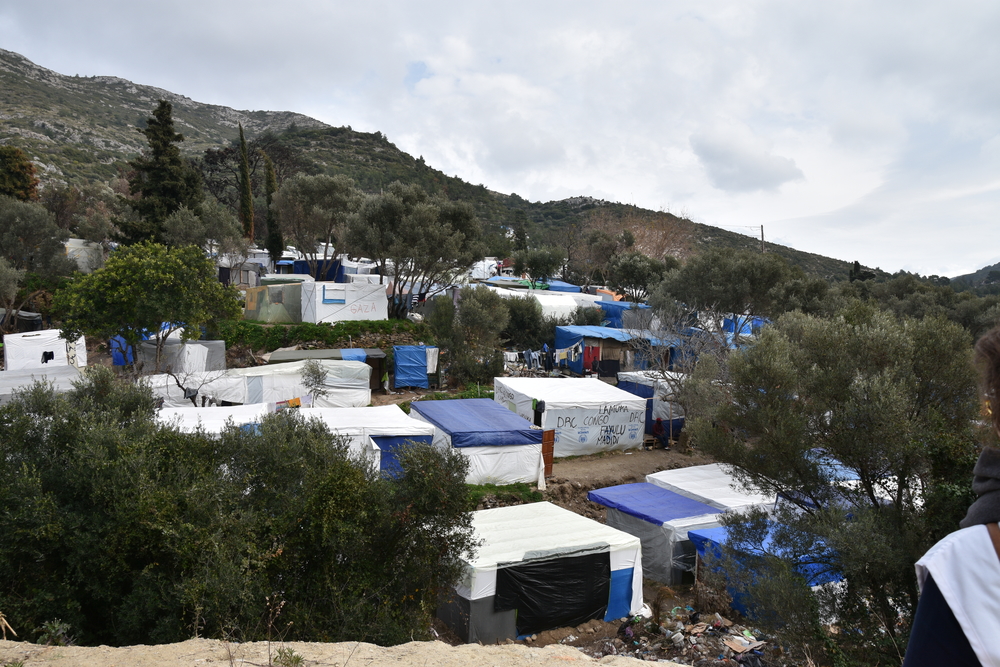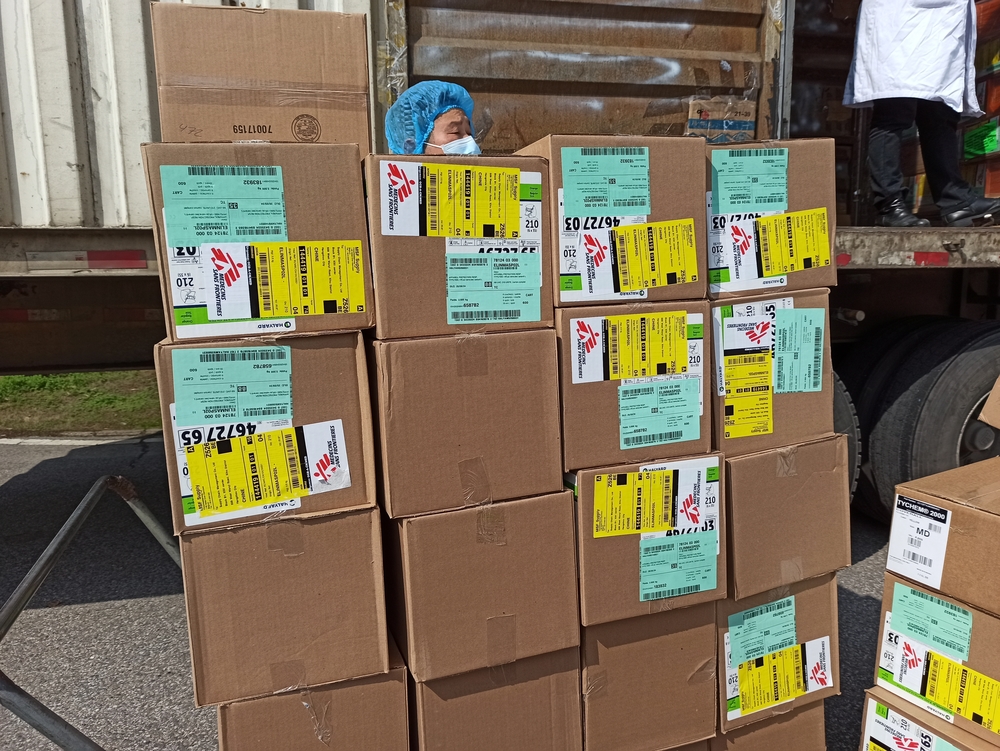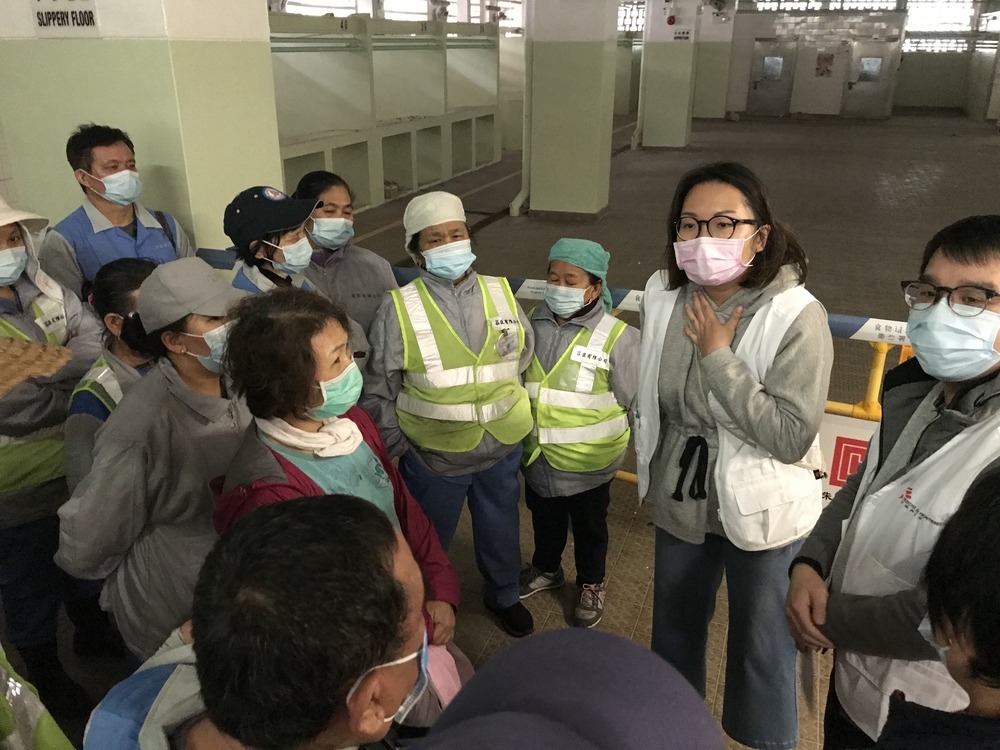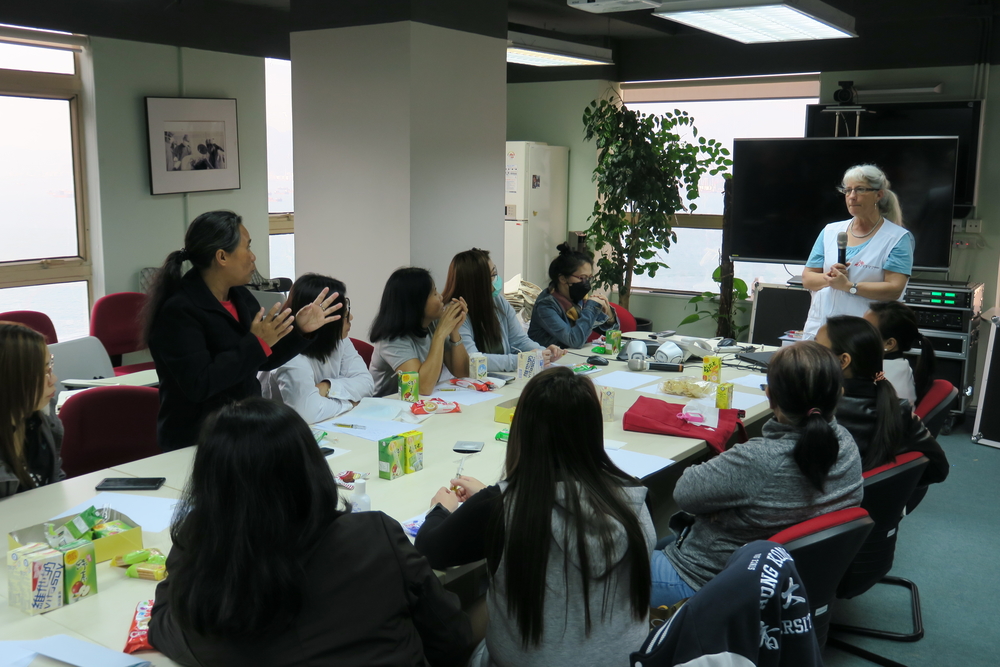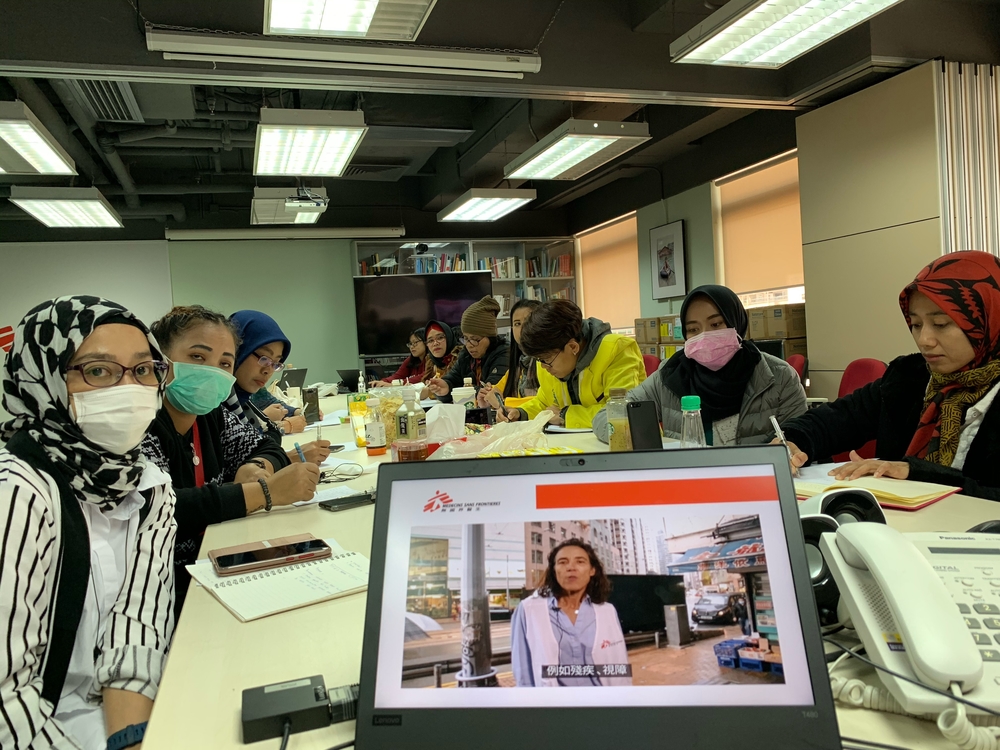New MSF report: High-income countries must stop hoarding 870 million excess COVID-19 vaccines doses and redistribute them to save lives
Doctors Without Borders/Médecins Sans Frontières (MSF) calls on governments to publicly commit to monthly COVID-19 vaccine redistribution targets by end of October 2021.
Ottawa, 06 October 2021 – A new report by MSF warns that millions of people are at risk of dying from COVID-19 if high-income countries, a handful of which are hoarding an estimated 870 million* excess vaccine doses, including Canada, do not immediately begin redistributing these vaccines to low- and middle-income countries via COVAX or regional bodies such as the African Union, through the Africa Vaccine Access Trust (AVAT), and the Pan American Health Organization (PAHO). MSF calls on these governments, including the Canadian government, to commit to a concrete redistribution timeline by the end of October to save lives: if available vaccine doses held by high income countries such as Canada are promptly and steadily redistributed to low- and middle-income countries, it is estimated that nearly 1 million deaths could be averted by mid-2022.
Simply put, Canada and other countries are sitting with millions of doses of COVID-19 vaccines in freezers while others, including many low-income countries where MSF is responding to COVID-19, are desperate to provide their most vulnerable people with even their first dose,” said Jason Nickerson, MSF’s Humanitarian Representative to Canada.
Jason Nickerson | Msf Humanitarian Representative To Canada
TWEET THIS:
“Simply put, Canada and other countries are sitting with millions of doses of COVID-19 vaccines in freezers while others, including many low-income countries where MSF is responding to COVID-19, are desperate to provide their most vulnerable people with even their first dose,” said Jason Nickerson, MSF’s Humanitarian Representative to Canada. “To end the COVID-19 pandemic and protect everyone against this virus, global vaccine coverage needs to be increased much more quickly than has been happening so far. To do so, we urgently need countries that have purchased more doses than they currently need, including Canada, to make public and concrete commitments with ambitious timelines to steadily redistribute their excess COVID-19 vaccines.”
As the country that famously secured the most excess doses per capita in the world – five times more doses than its population required – Canada needs to do more to follow through on dose redistribution. For instance, Canada has committed to donate 40.7 million in-kind doses of vaccine to COVAX. However, although Canada had received enough vaccines to fully vaccinate every eligible Canadian by late July, not a single dose of its pledge to COVAX was delivered until September. Furthermore, Canada has not been providing readily accessible updates on the status of its donations; as of the end of September, MSF estimates less than three million – well under 10% – of Canada’s promised doses had been delivered to countries in need of doses. In addition to its COVAX commitment, Canada has also made a series of bilateral donations since August, thus far totaling a little over 750,000 doses; meanwhile, according to media reports, as of late September, Canada had a stockpile of over 18 million doses sitting unused and at potential risk of expiry.
There is a wide chasm between countries that have COVID-19 vaccine doses to administer and those that don’t: over 60% of people in high-income countries have received at least one dose of a COVID-19 vaccine while less than 3% of people in low-income countries have. At the same time, high-income countries are holding millions of excess doses that could expire if not urgently redistributed – G7 and EU countries alone could waste 241 million doses by the end of 2021, even after boosters for high-risk groups and donations pledged to be distributed by high-income countries by the end of 2021 are fulfilled. While many world leaders have made commitments to redistribute doses by the end of 2021 or into 2022, the world needs immediate action to curb vaccine inequity – Canada and other high-income countries must redistribute excess doses now, well in advance of their expiry date, and ensure they are delivered by supporting receiving countries to overcome logistical and technical constraints.
Despite the desperate need for vaccines in low- and middle-income countries, pharmaceutical corporations continue to prioritize sales to the wealthiest countries. Pfizer-BioNTech and Moderna have respectively allocated 78% and 85% of their COVID-19 vaccine deliveries to high-income countries, and estimate earnings of US$26 billion and $19.2 billion, respectively, in sales from the COVID-19 vaccine in 2021 alone.** Furthermore, no COVID-19 vaccine manufacturer has shared their technology with the World Health Organization (WHO)-led COVID-19 mRNA vaccine technology transfer hub in South Africa, leaving potential manufacturers in low- and middle-income countries with few avenues for production.
Over 60% of people in high-income countries have received at least one dose of a COVID-19 vaccine while less than 3% of people in low-income countries have.
This prioritization of profit over public health by pharmaceutical corporations has left low- and middle-income countries, COVAX and regional bodies struggling for doses. COVAX recently had to decrease its anticipated 2021 supply forecast by approximately 25% due to delayed shipments by several manufacturers, and while earlier this year WHO had set a conservative target of 10% vaccination coverage for every country around the world by the end of September, 56 countries missed this target. If low vaccination rates in any country continue, it is more likely that new variants will develop, including “variants of concern” like the Delta variant, which are a threat to health systems around the world and may prolong the pandemic.
“Since the start of the pandemic, MSF has called on governments and pharmaceutical corporations to put lives over profits, through global cooperation to rapidly scale-up vaccine manufacturing, commit to fair pricing, and prioritize vaccine distributions to the highest risk populations everywhere. That pharmaceutical companies have put their profits first, supplying wealthy countries willing to pay high prices before anyone else, has cost lives and is nothing short of shameful,” said Nickerson.
Since the start of the pandemic, MSF has called on governments and pharmaceutical corporations to put lives over profits.
Jason Nickerson | MSF Humanitarian Representative In Canada
TWEET THIS:
“Canada and other countries have to change course and turn around this deadly inequity. But we need global cooperation to do so, and we need countries to accelerate the redistribution of their surplus COVID-19 vaccine doses that are sitting in freezers, to get them to people in places that are still waiting. Redistributing doses is an emergency stopgap measure to get vaccines where they are needed quickly, but this needs to happen alongside pharmaceutical companies sharing their vaccine technology and know-how with manufacturers capable of producing doses. This is necessary so that countries and regions that have been left behind in vaccine access can become more self-sufficient to produce COVID-19 vaccines, as well as vaccines against other pathogens with pandemic potential.”
